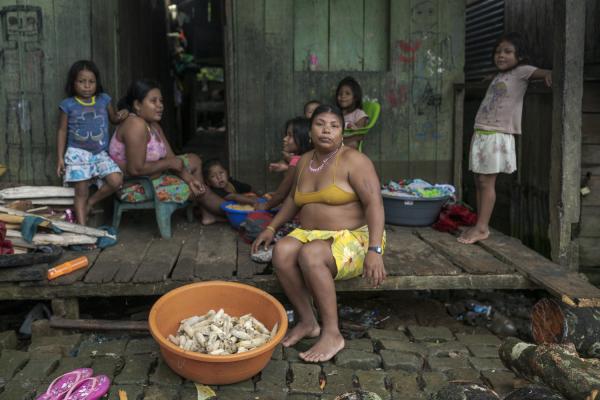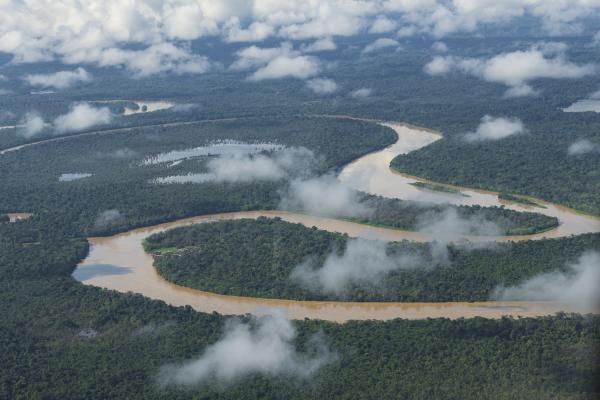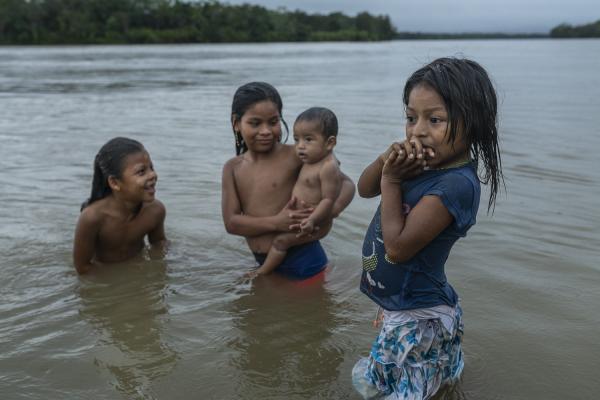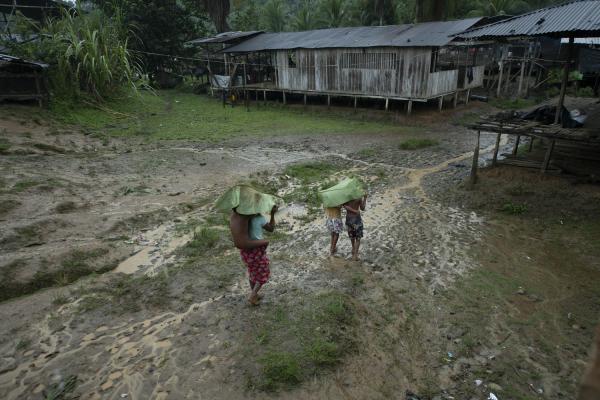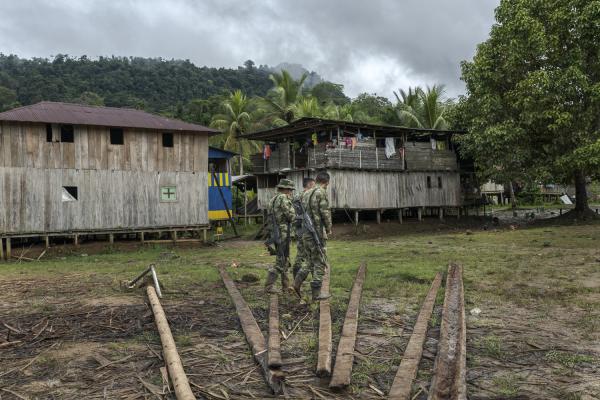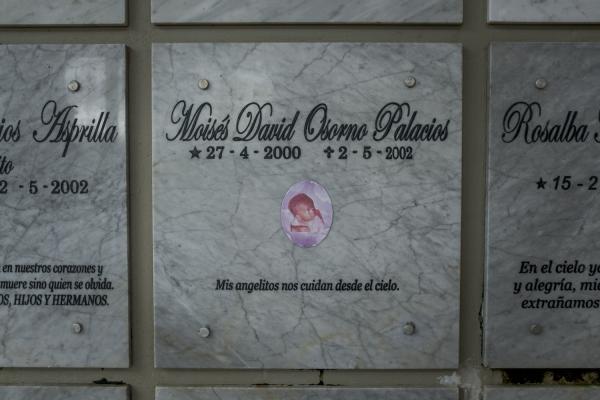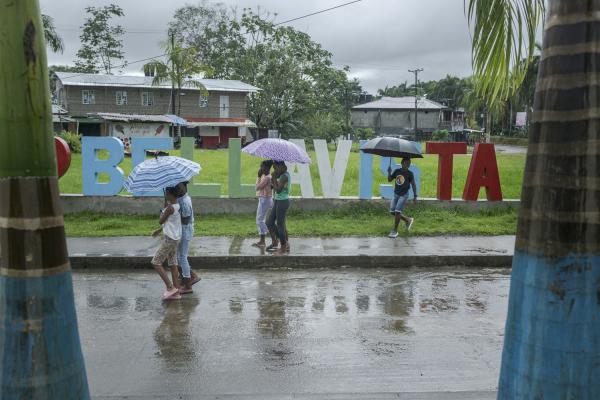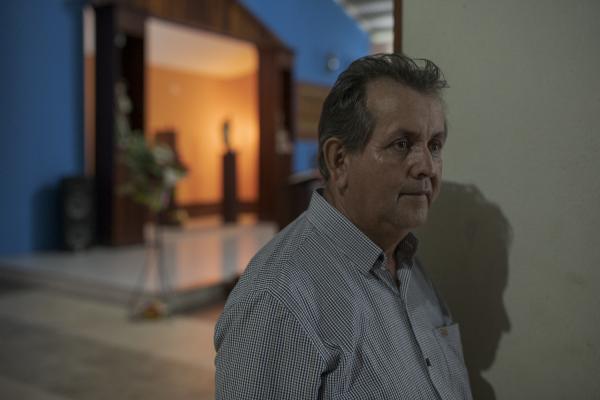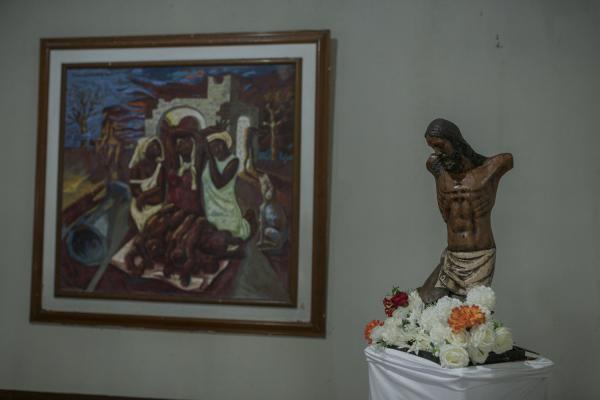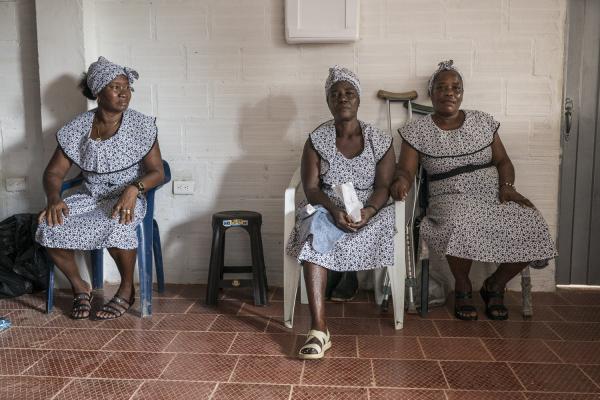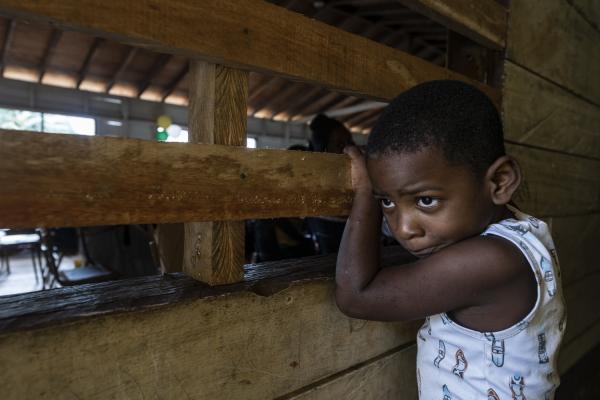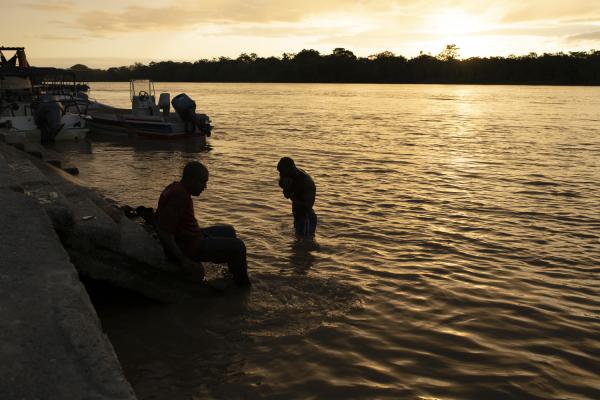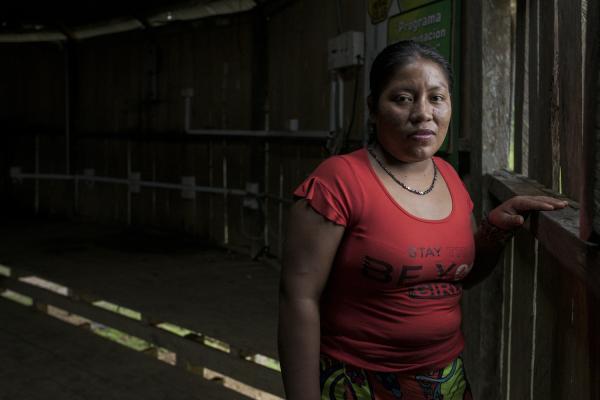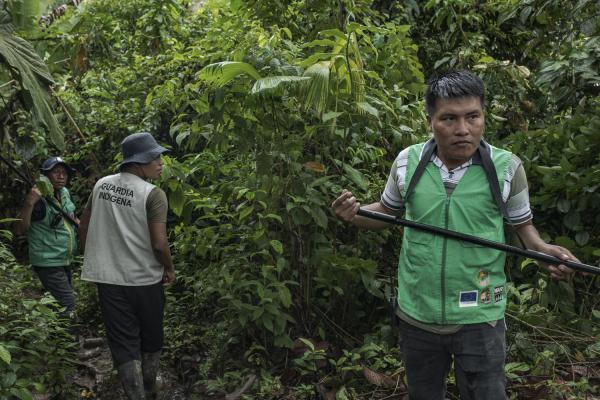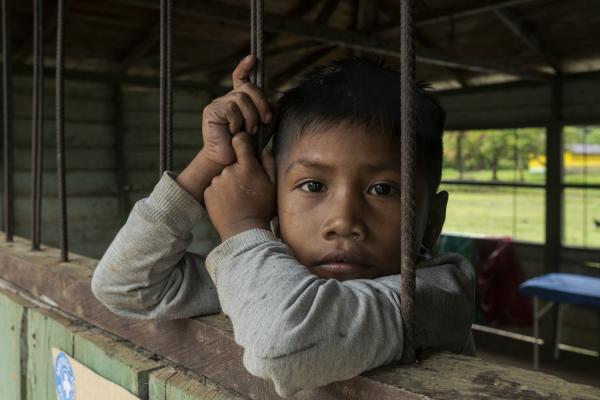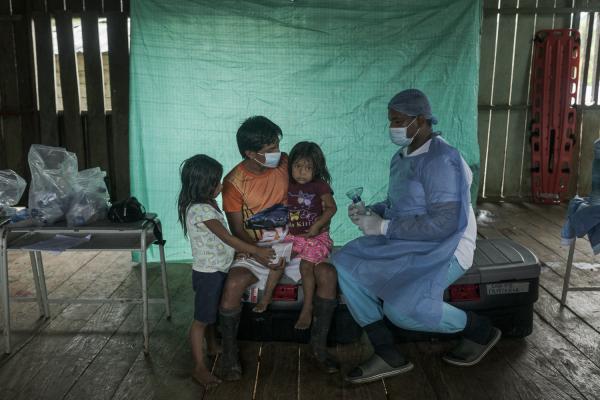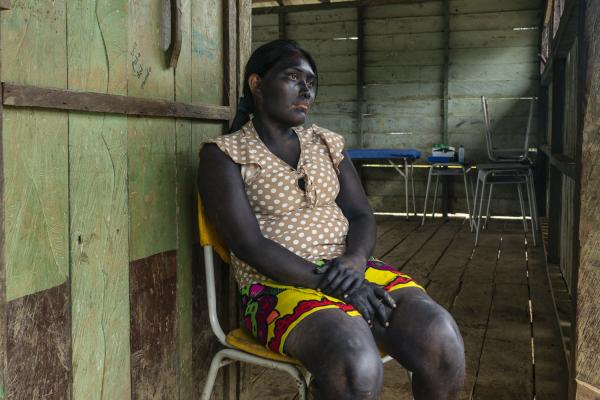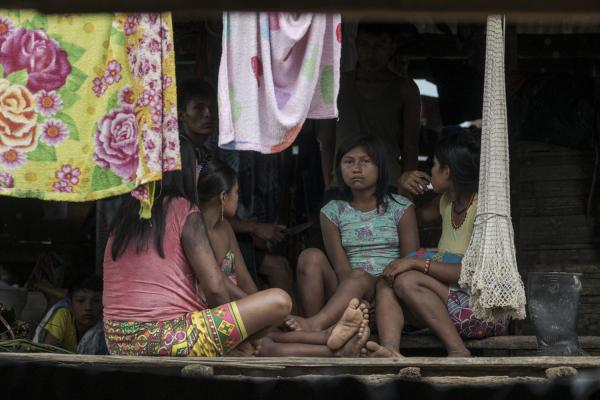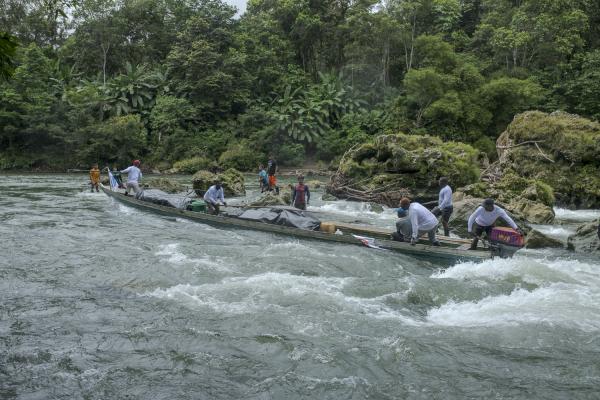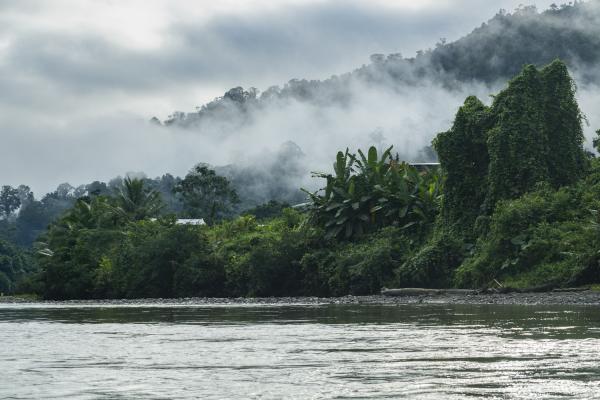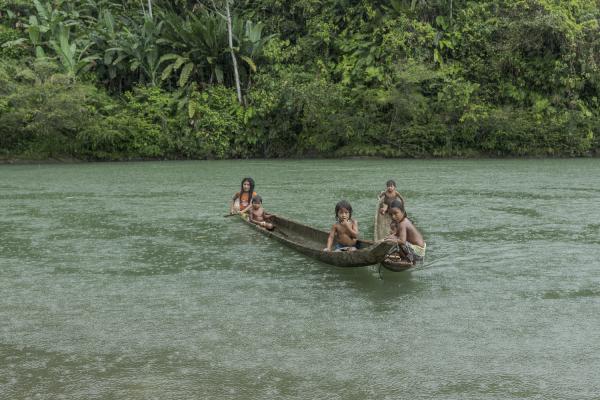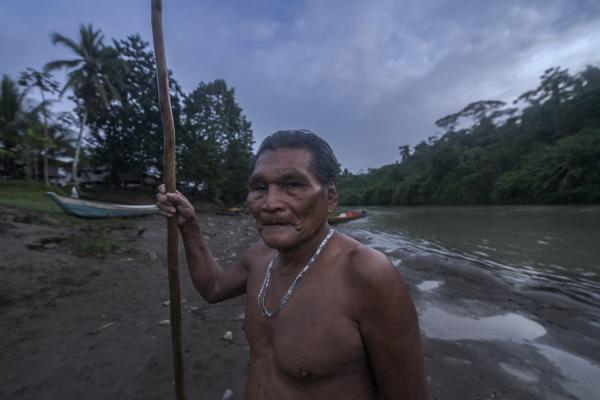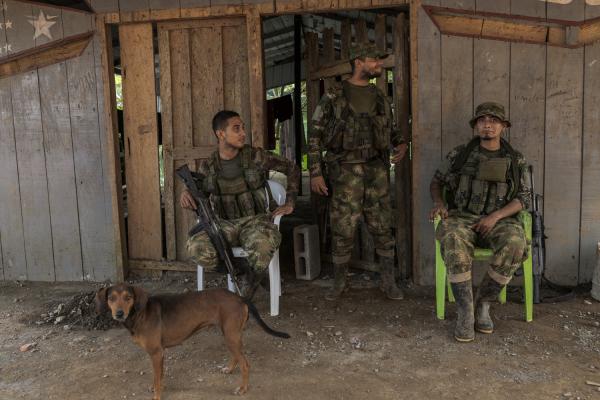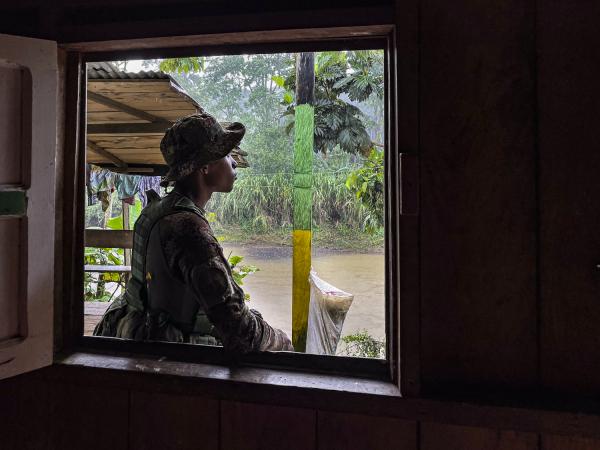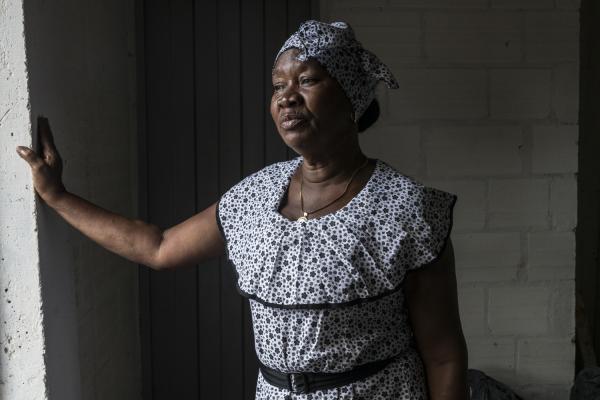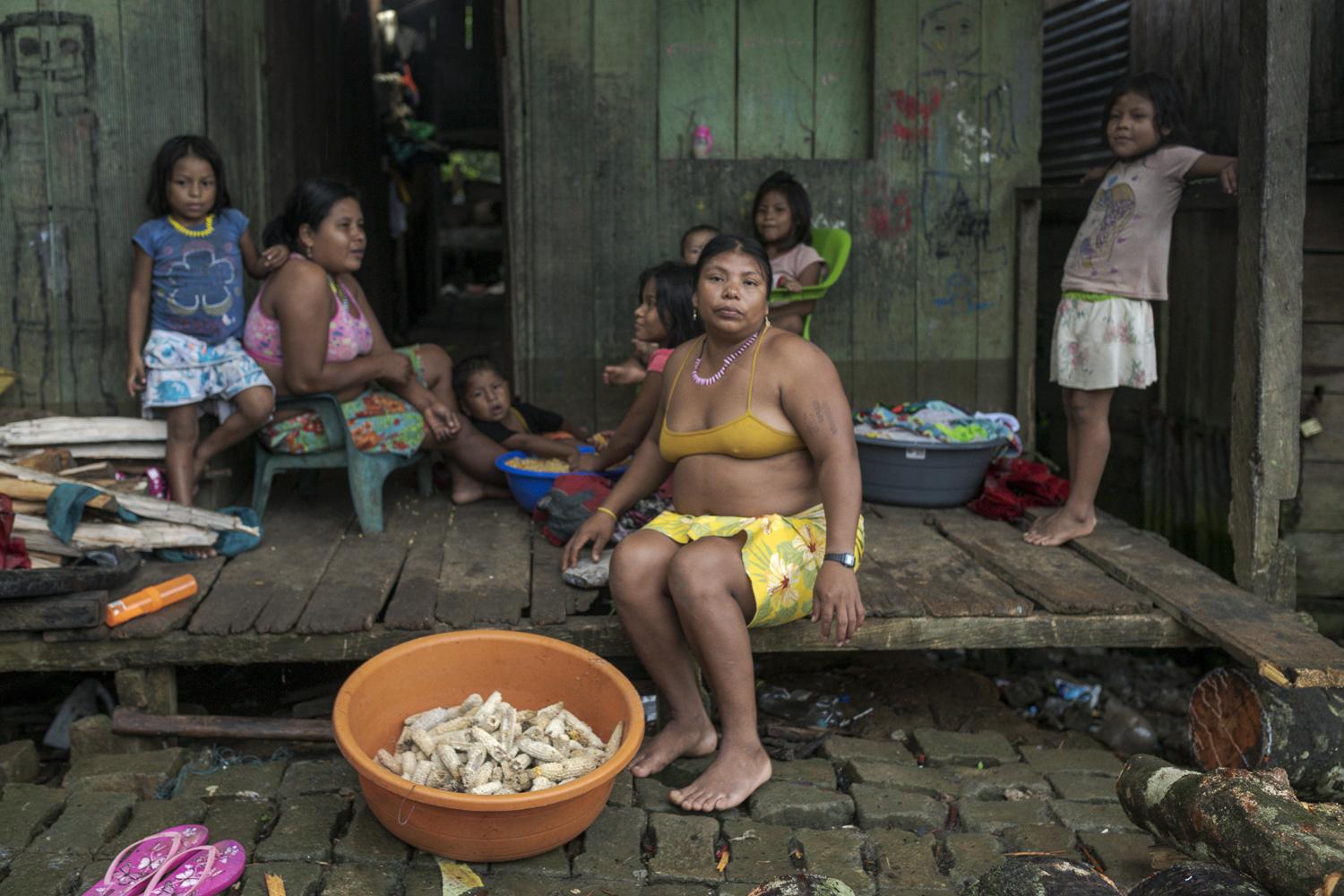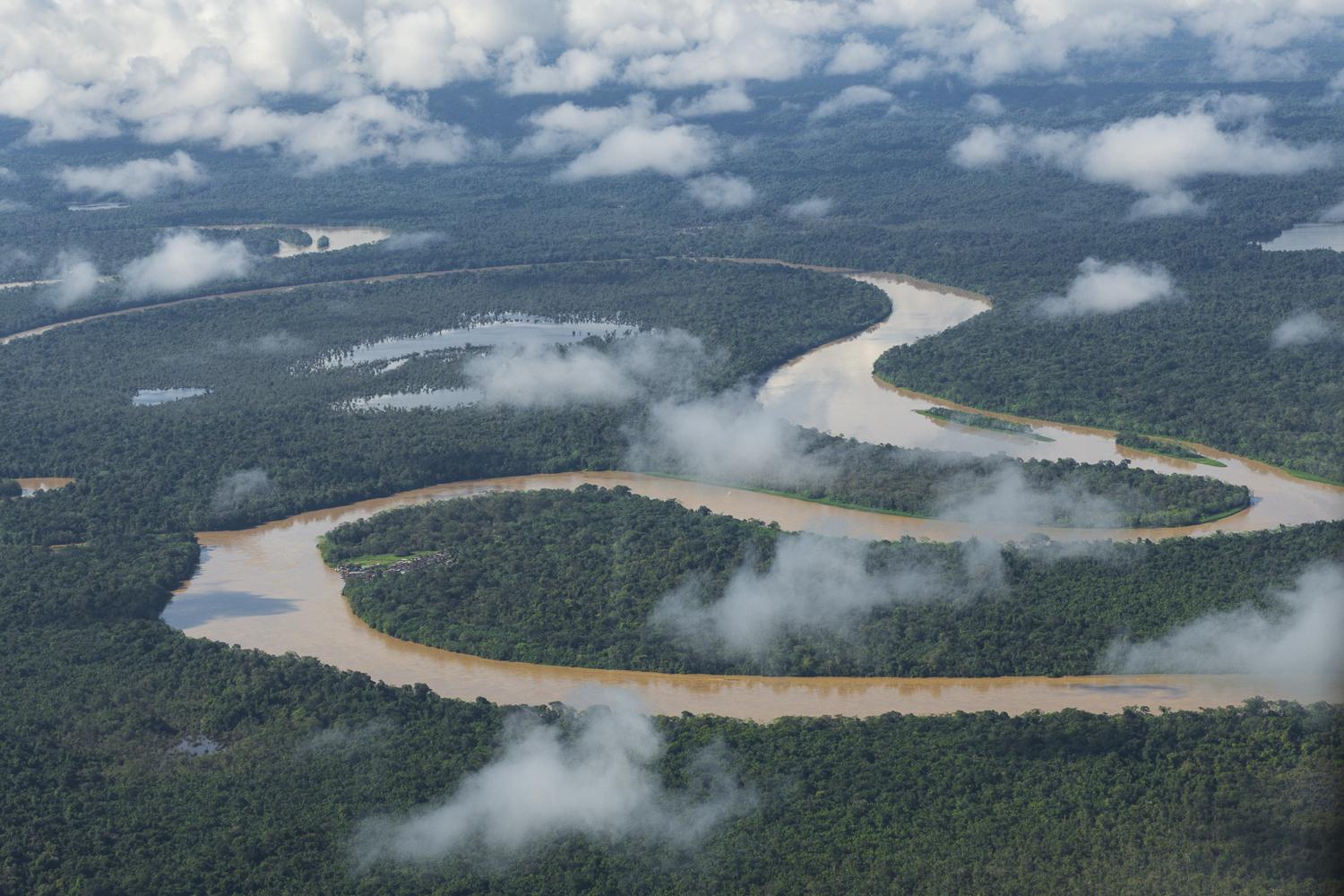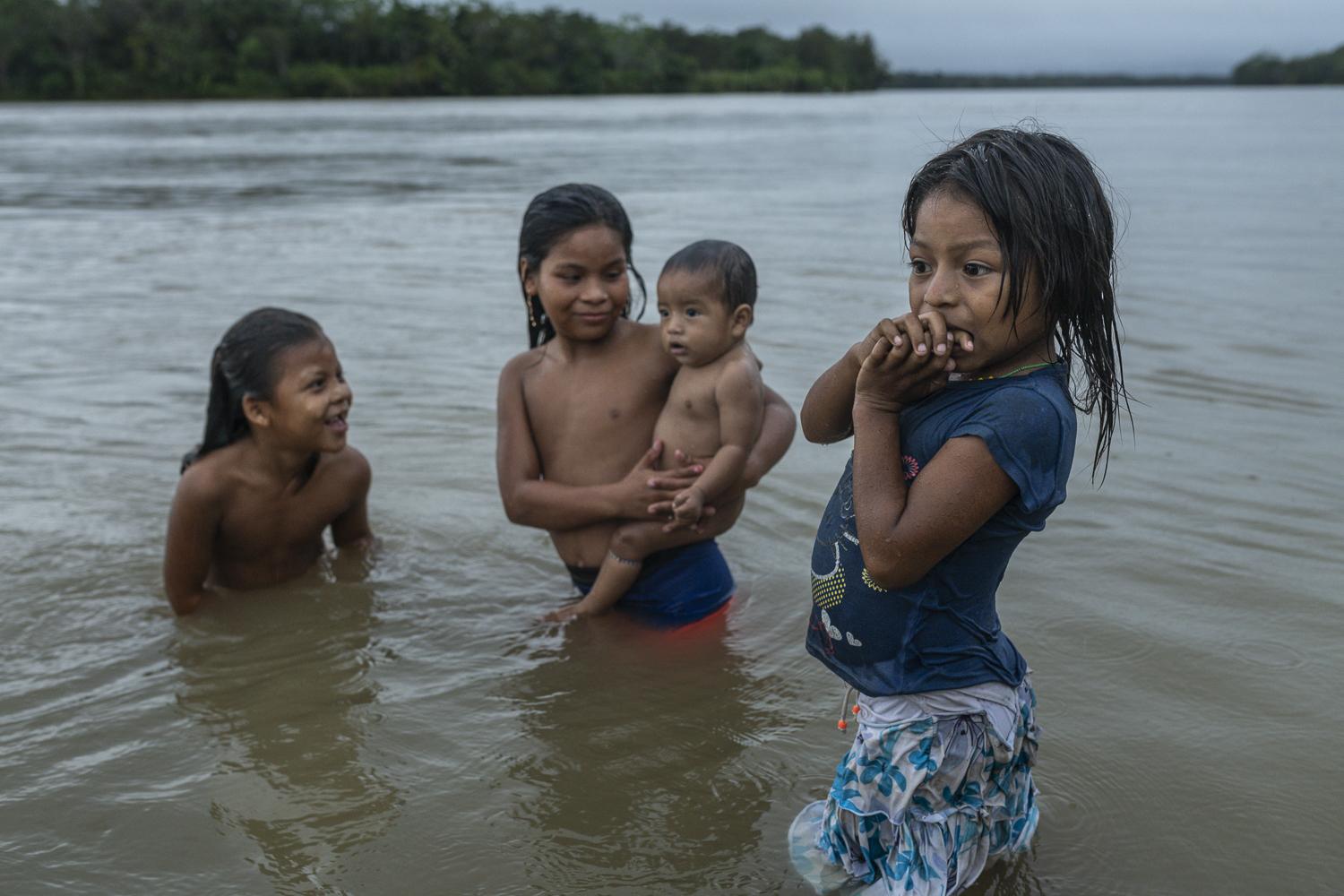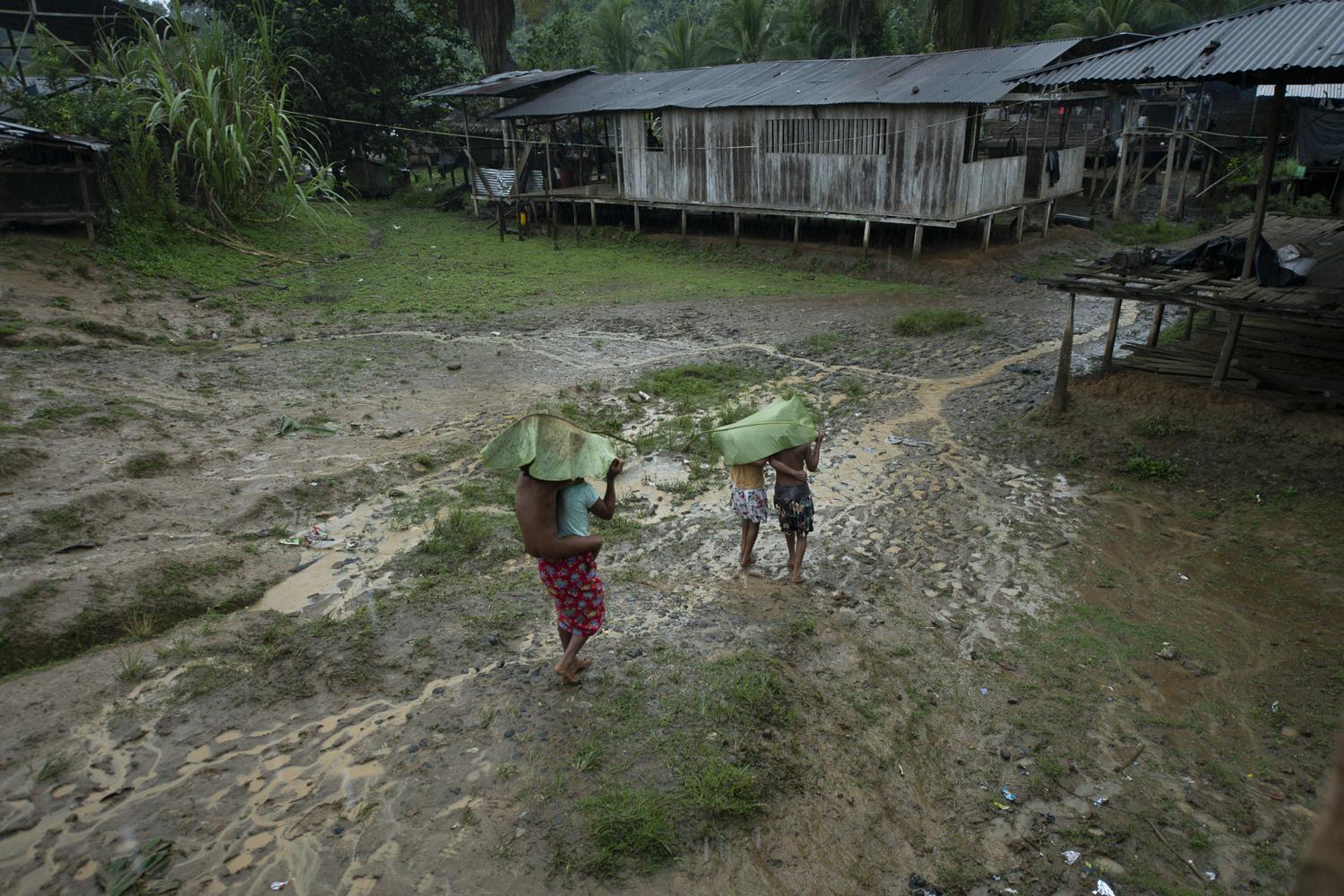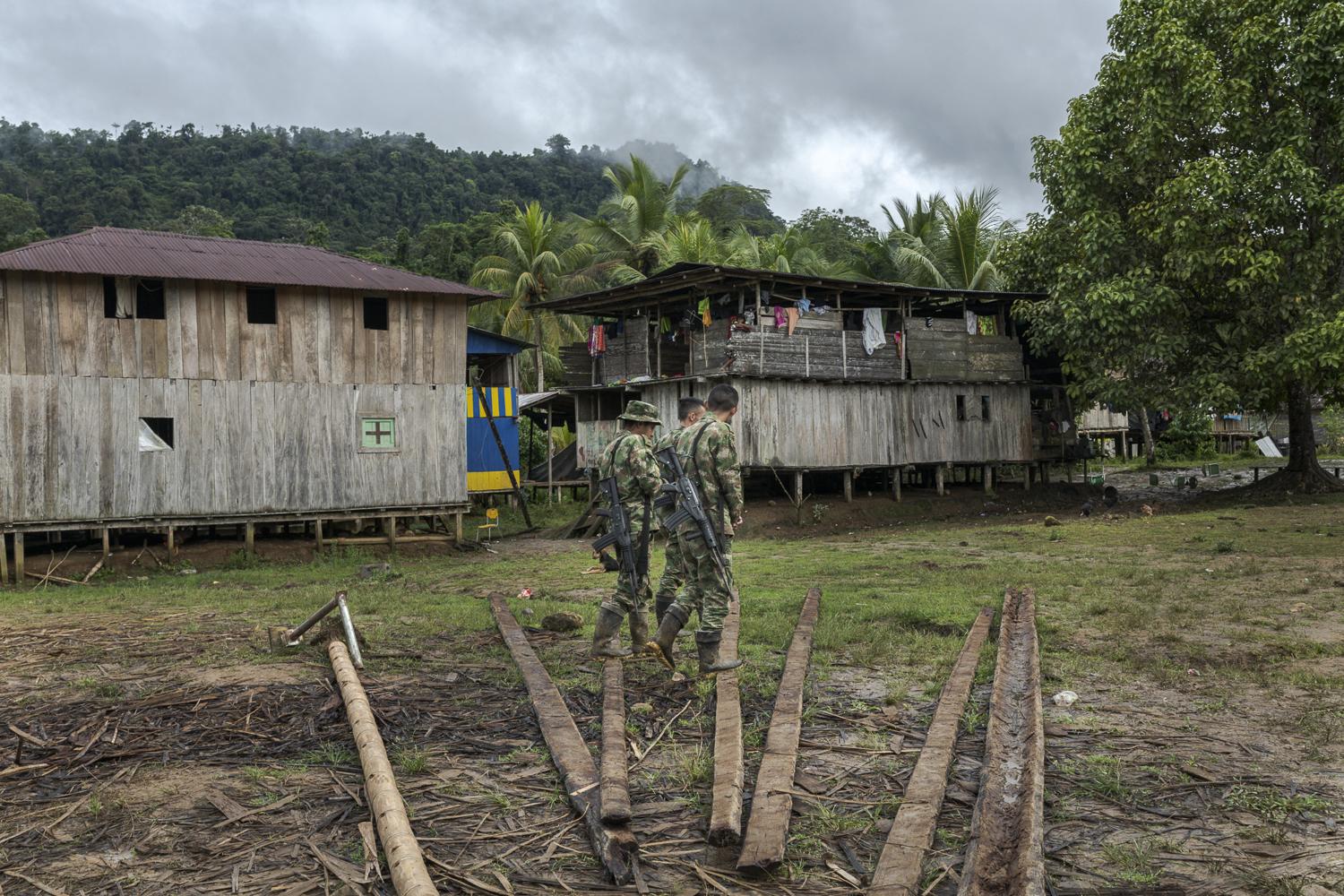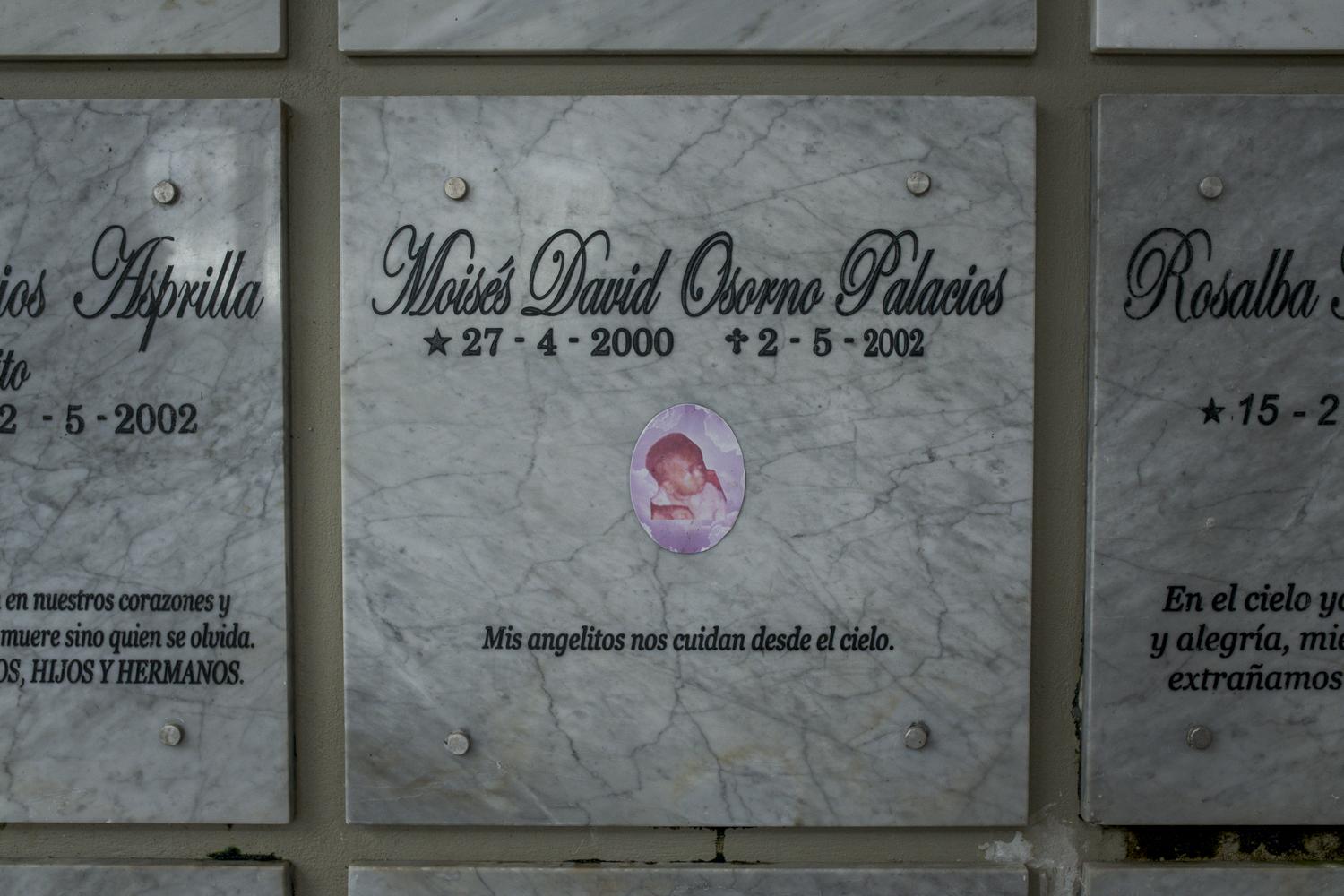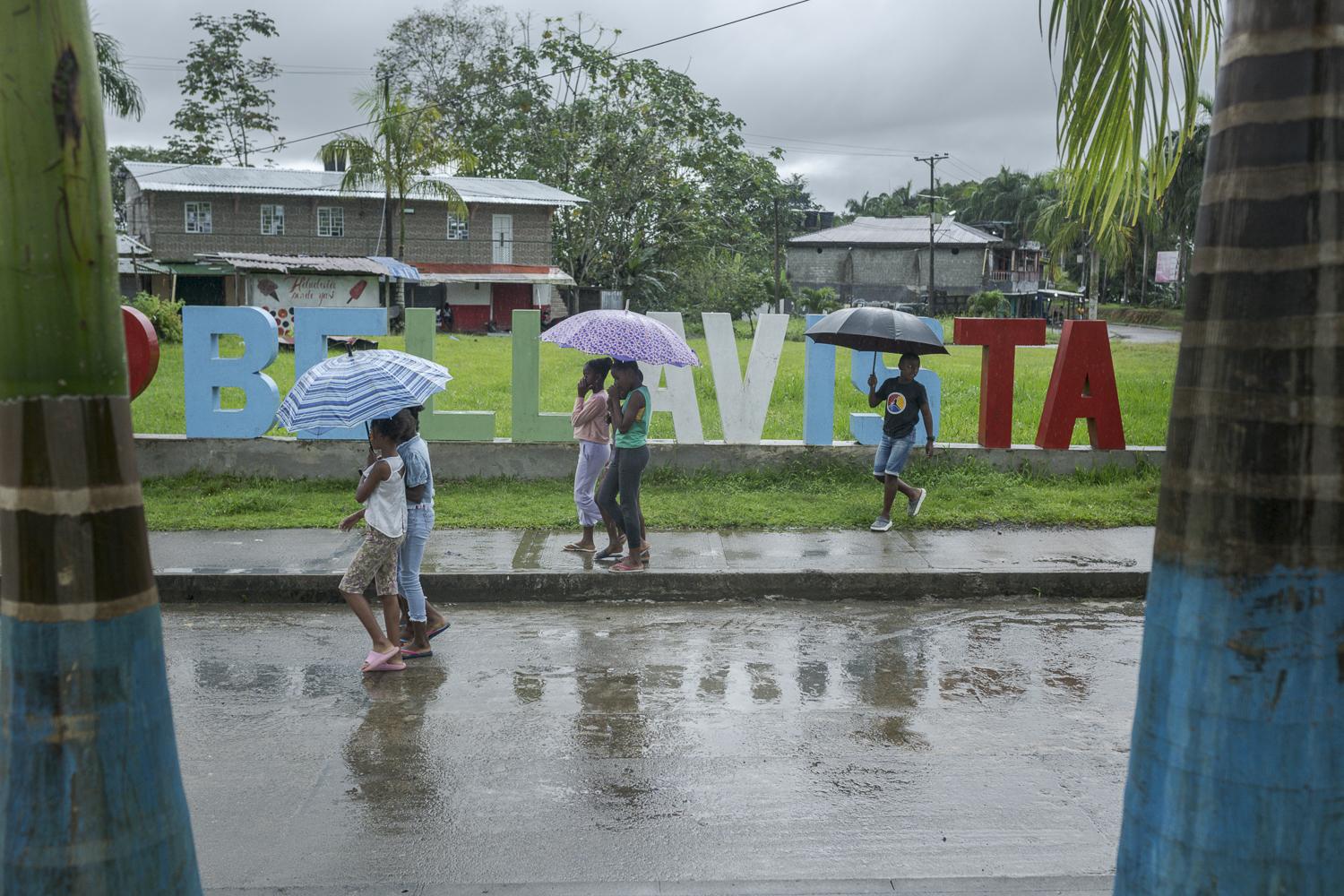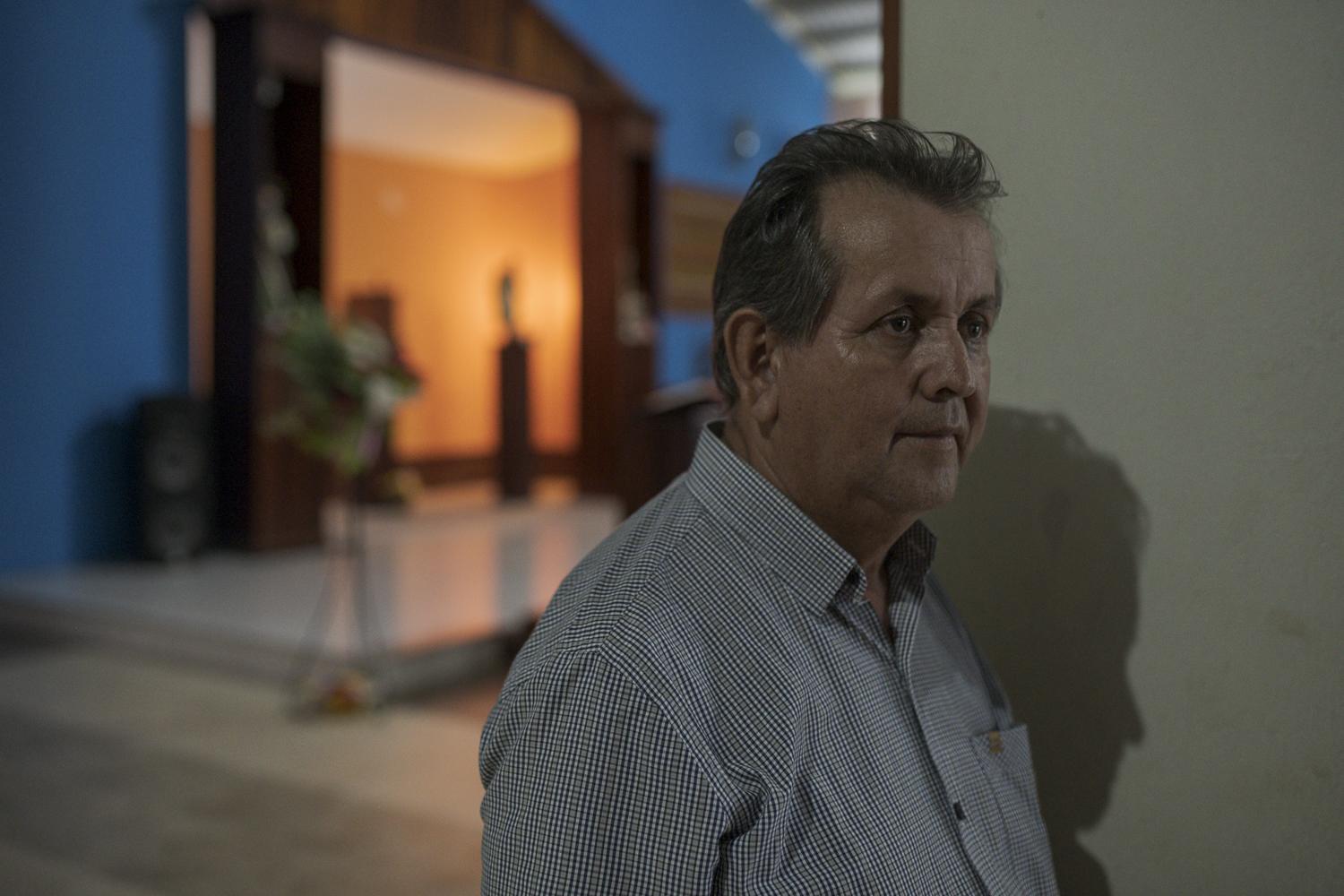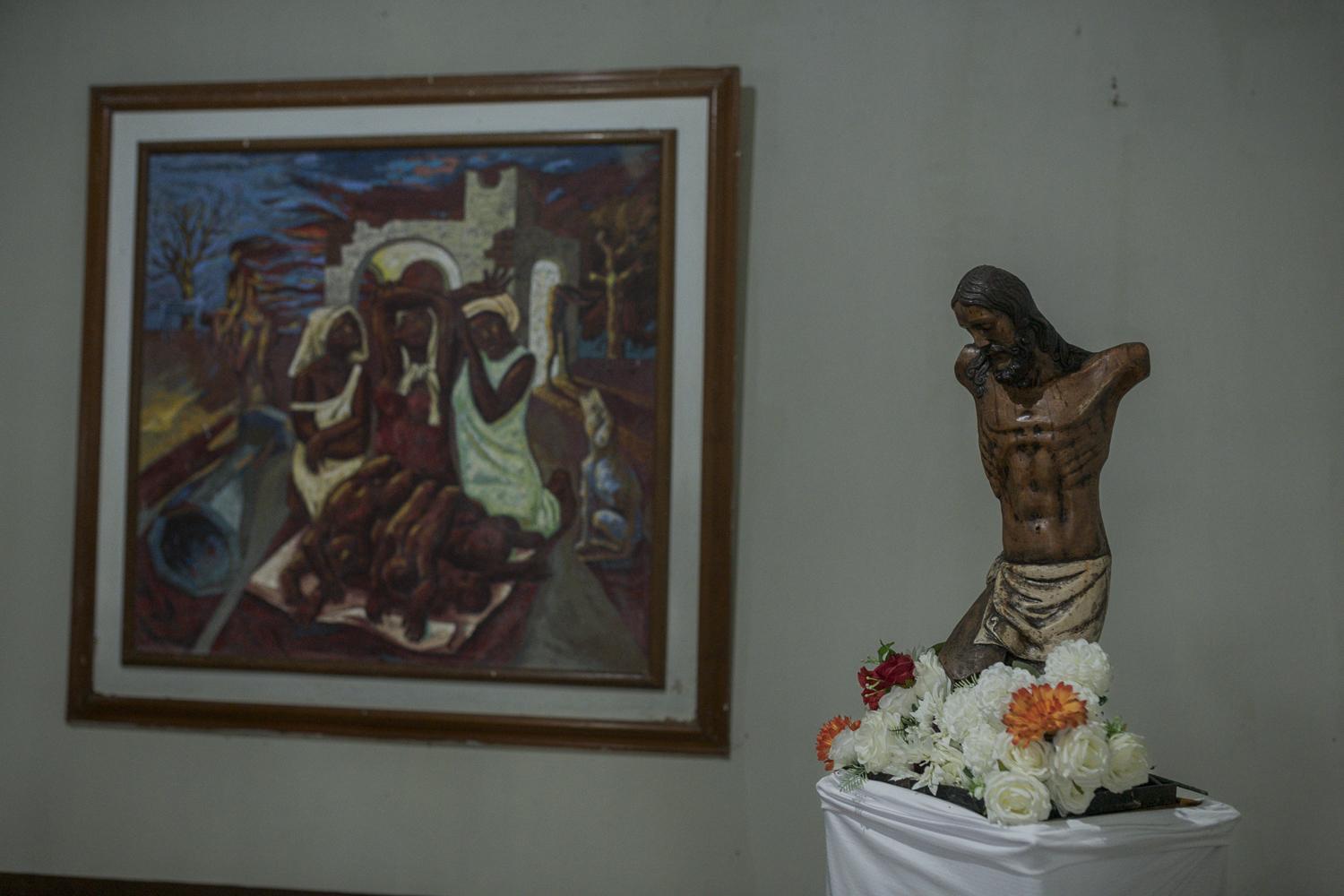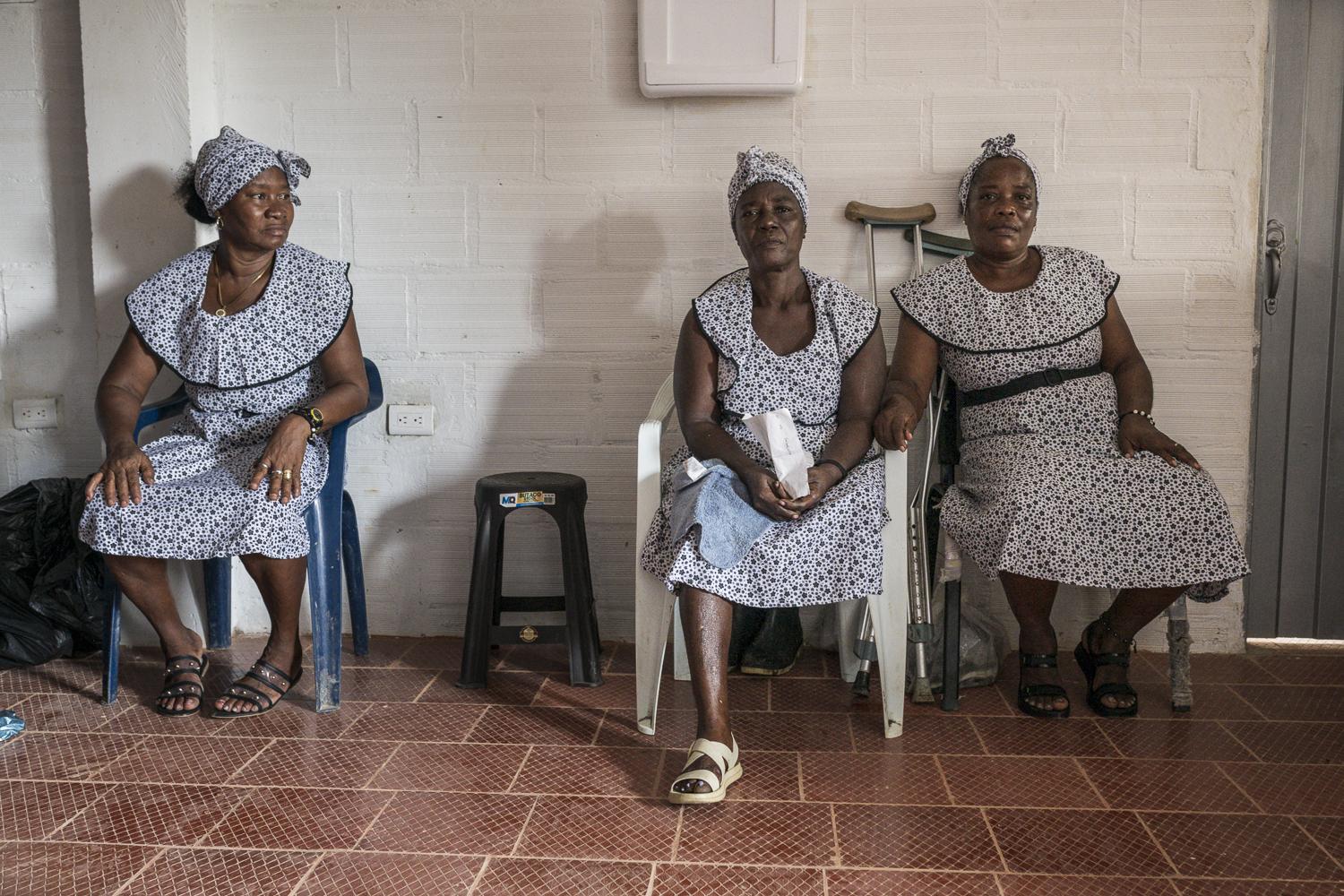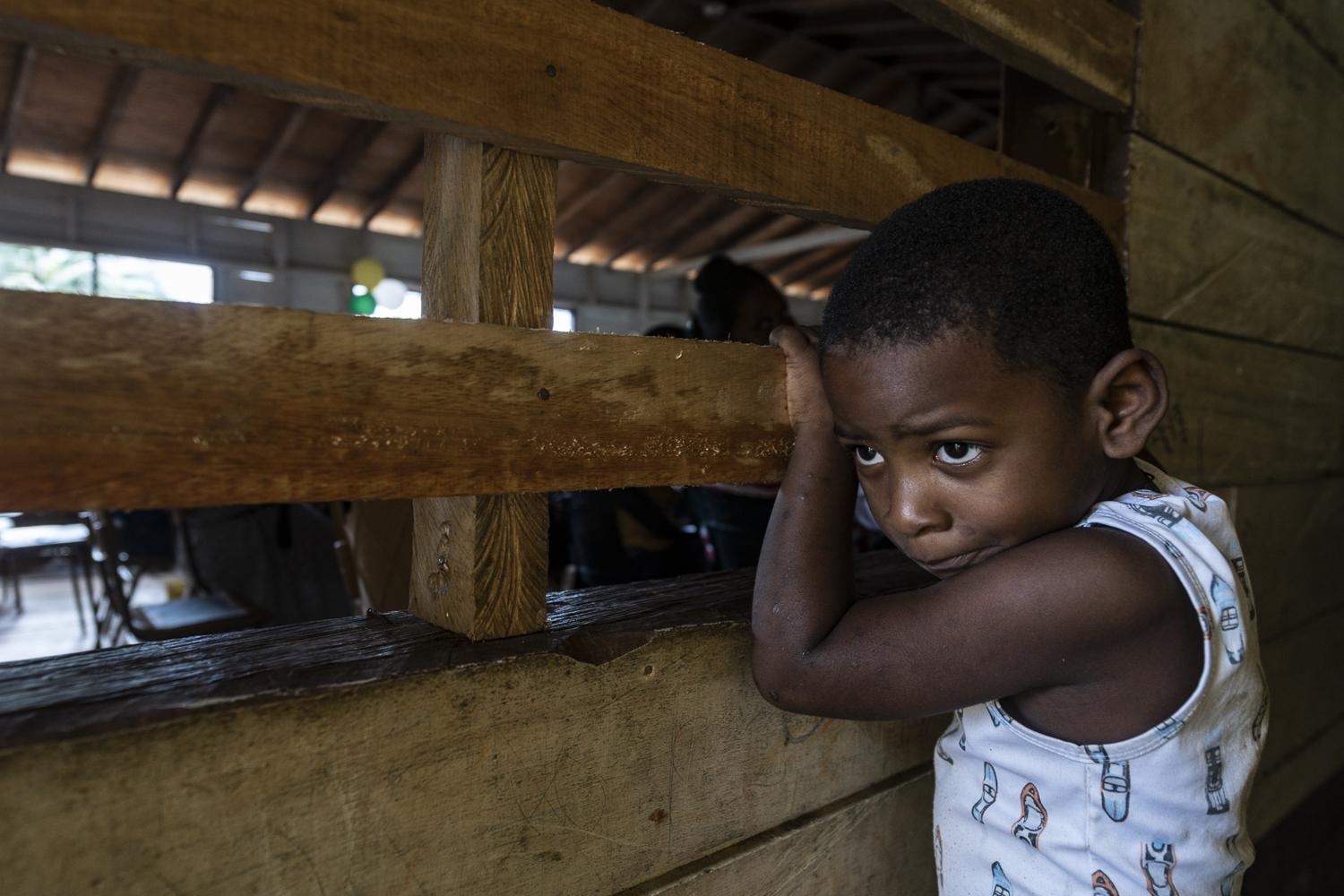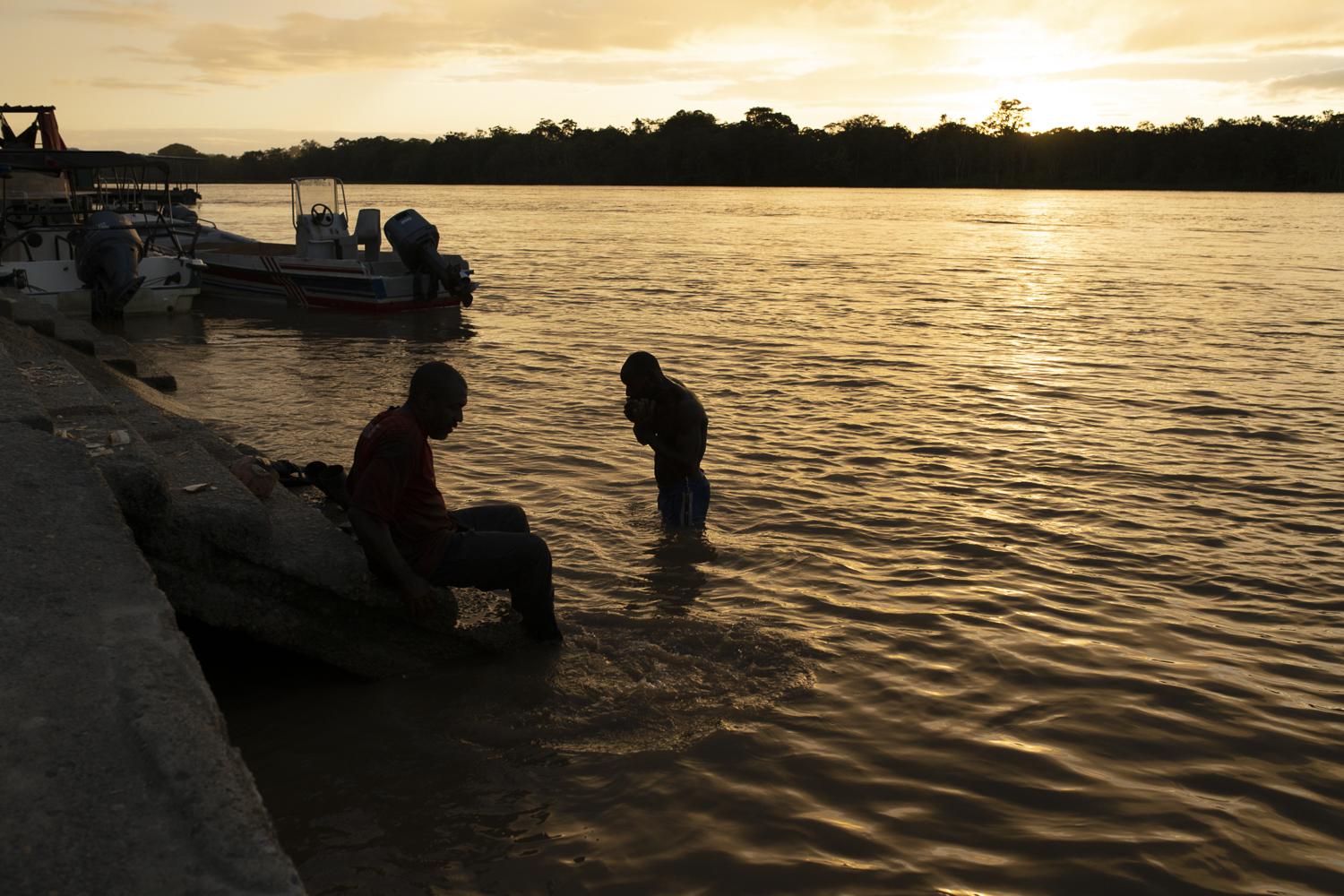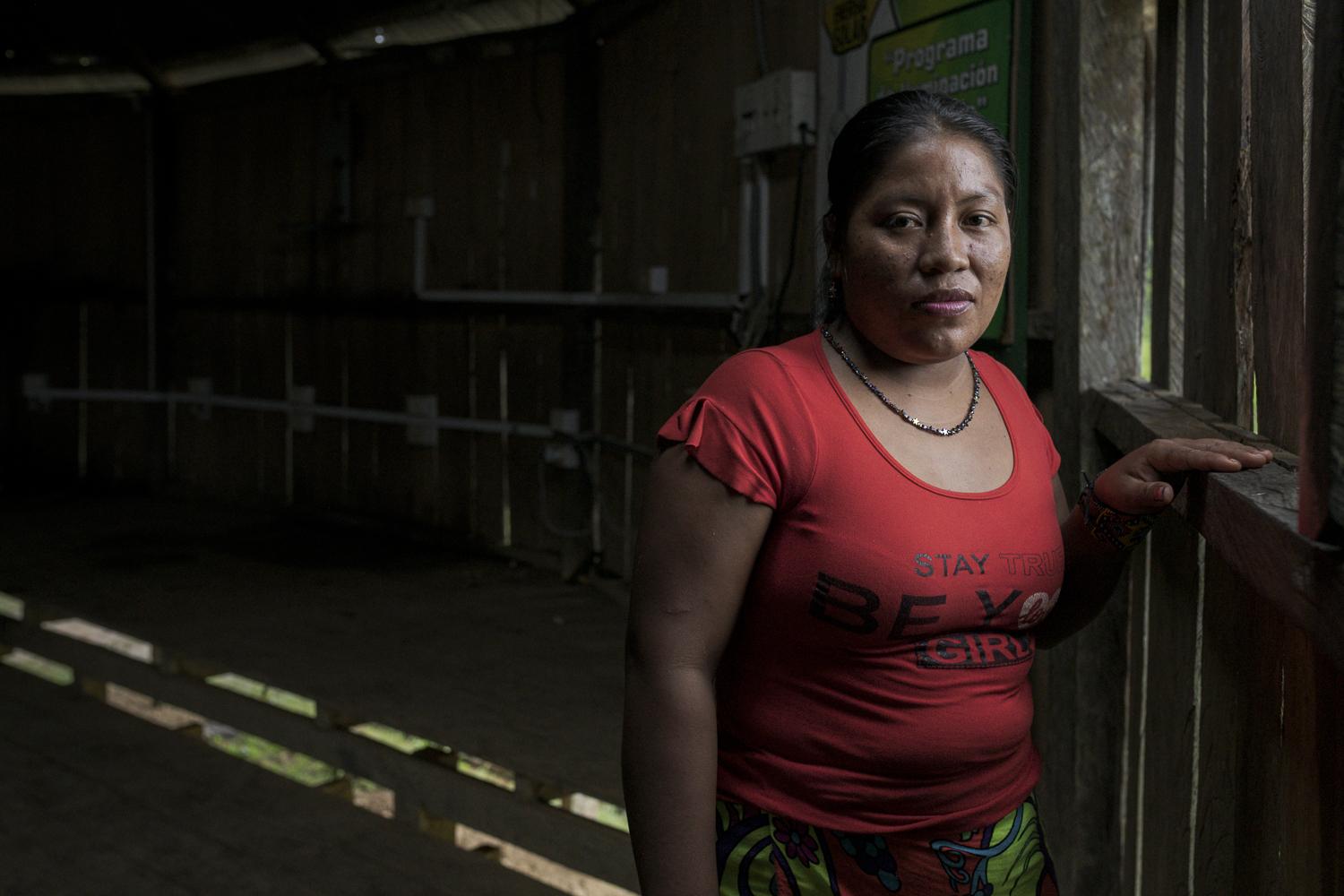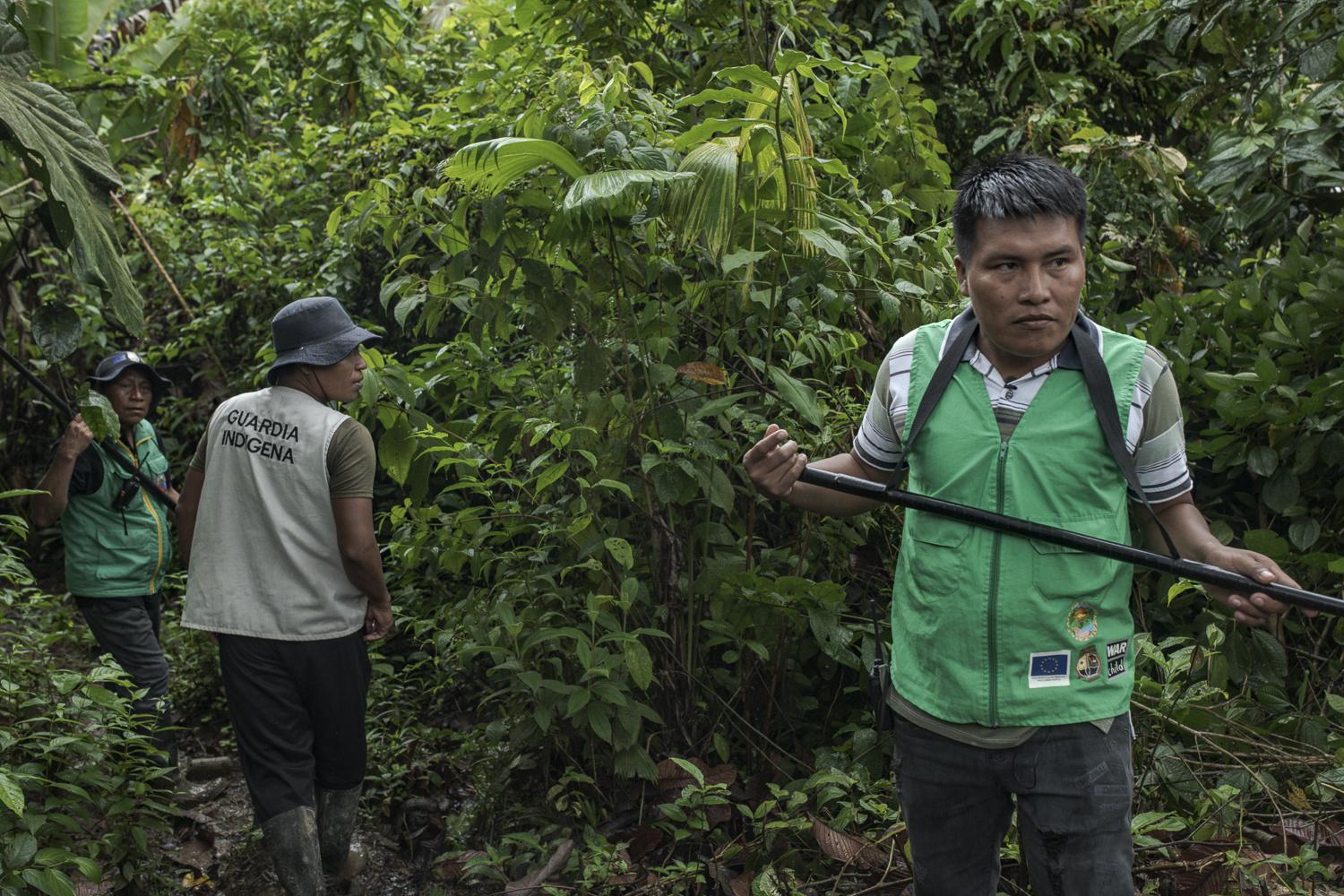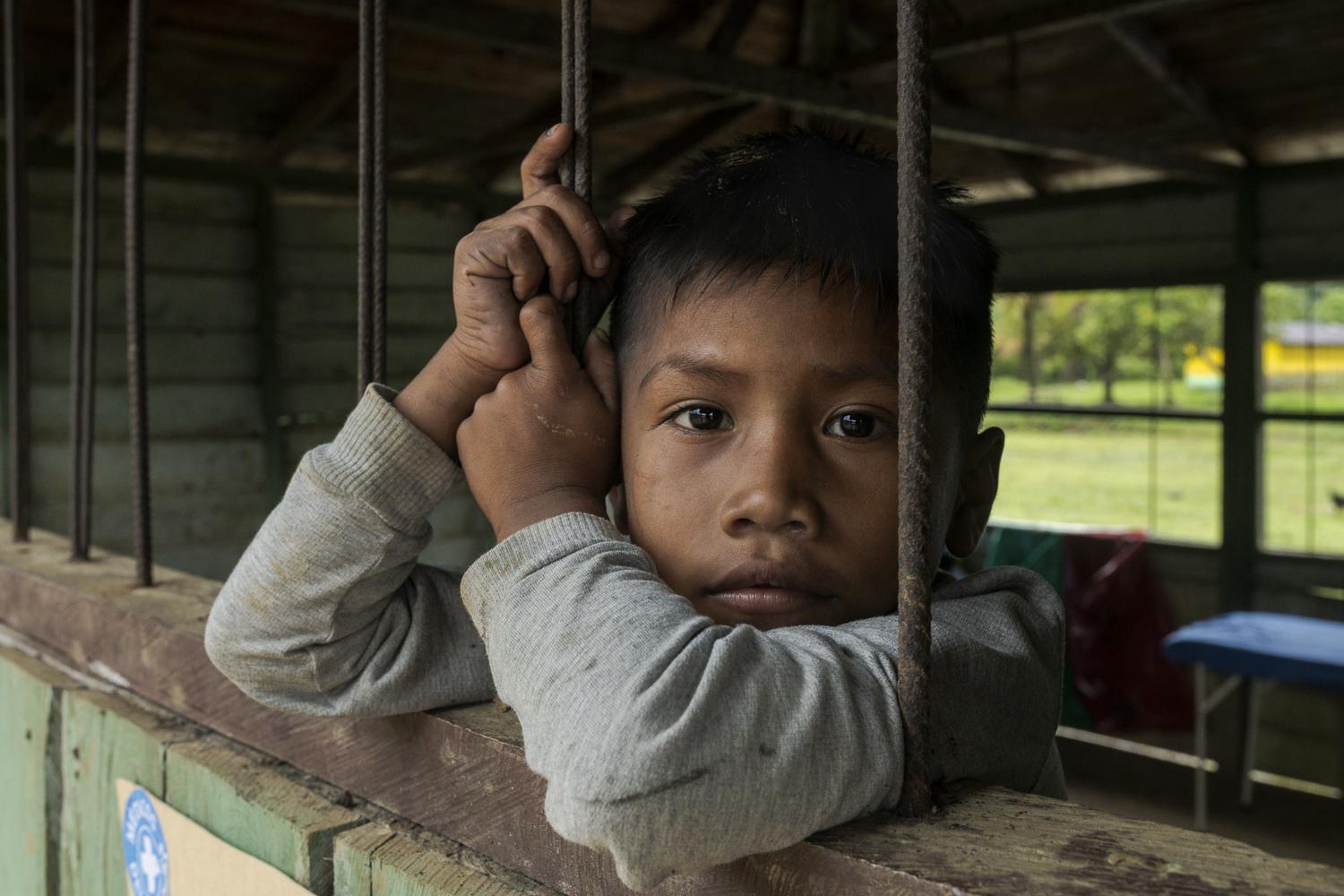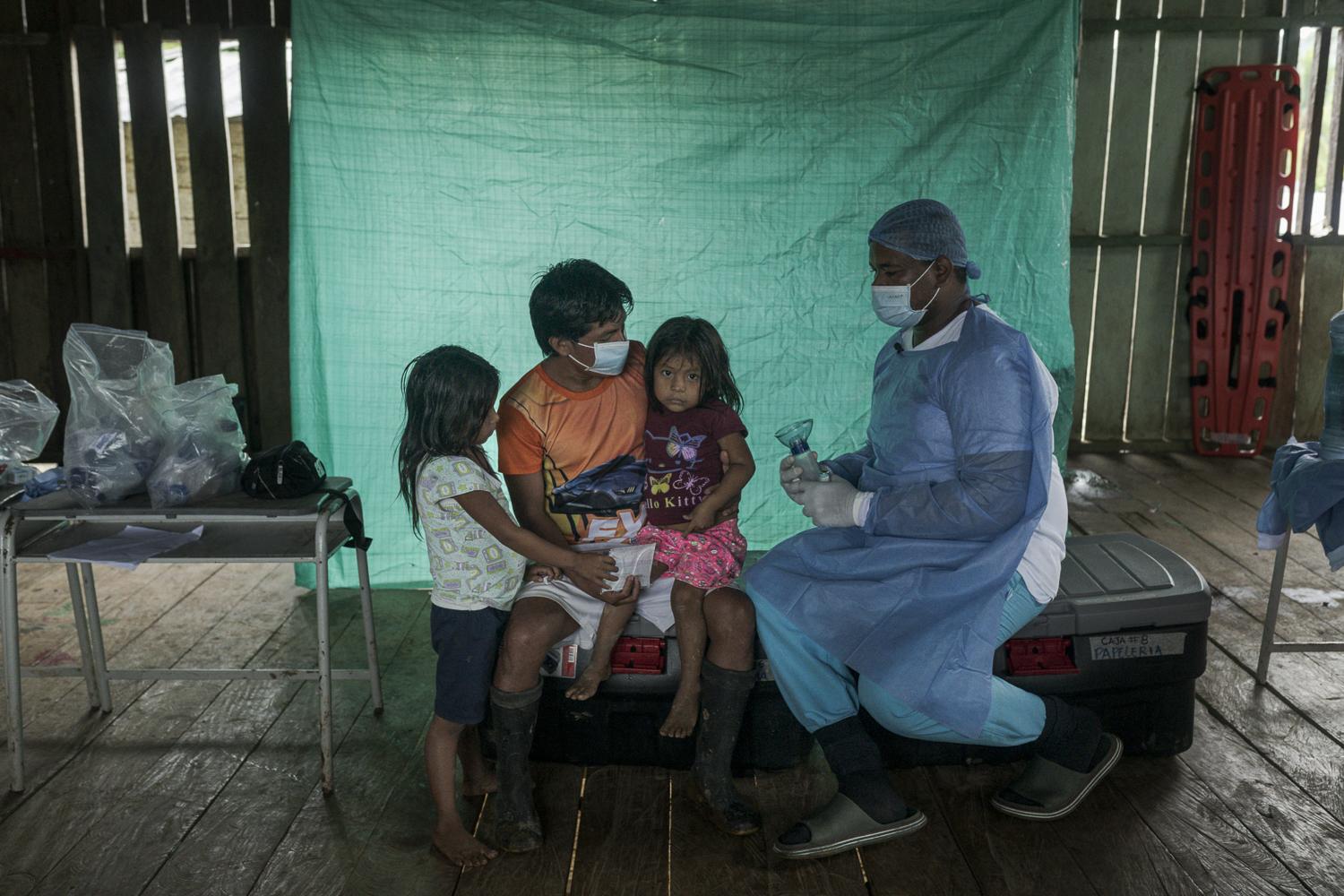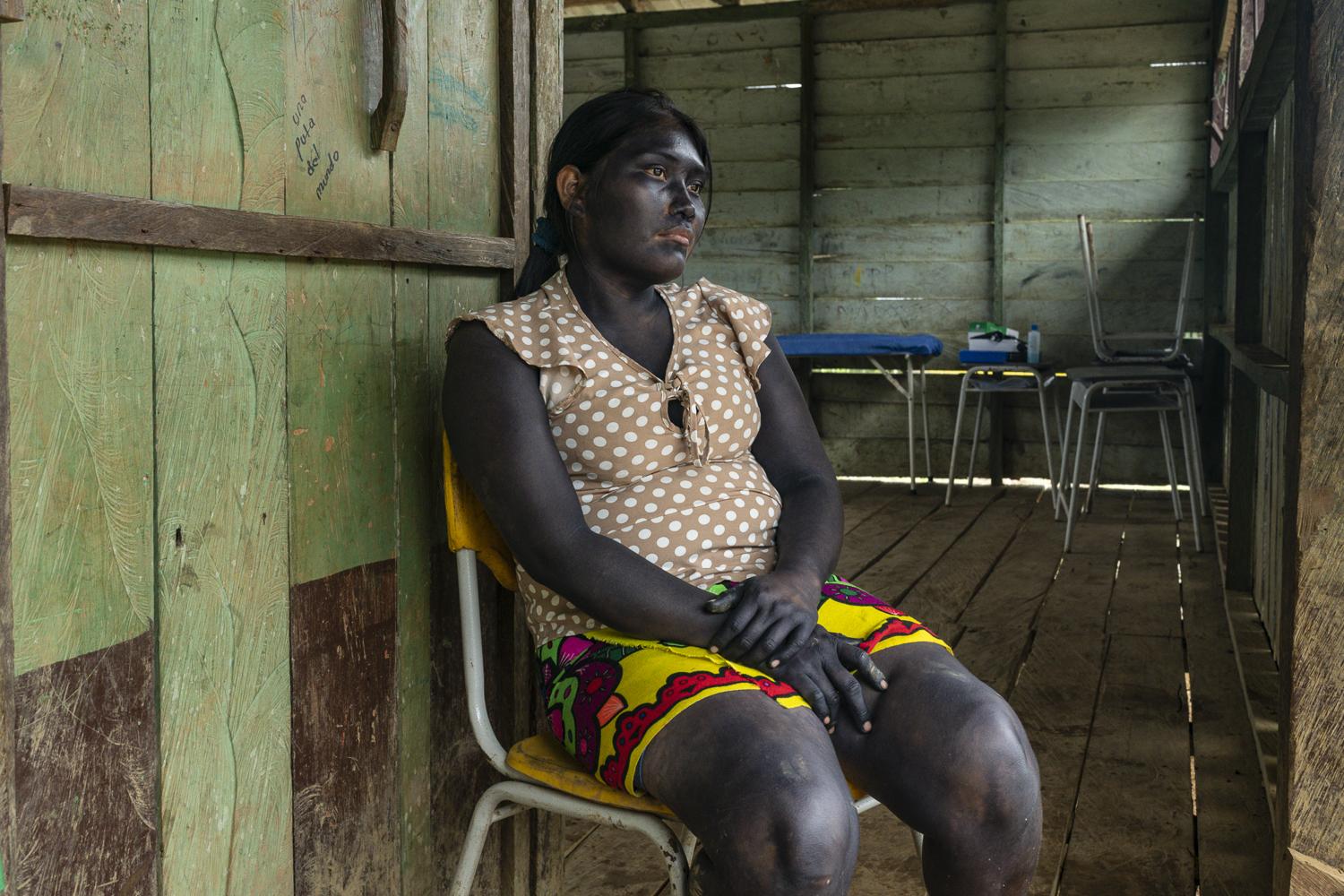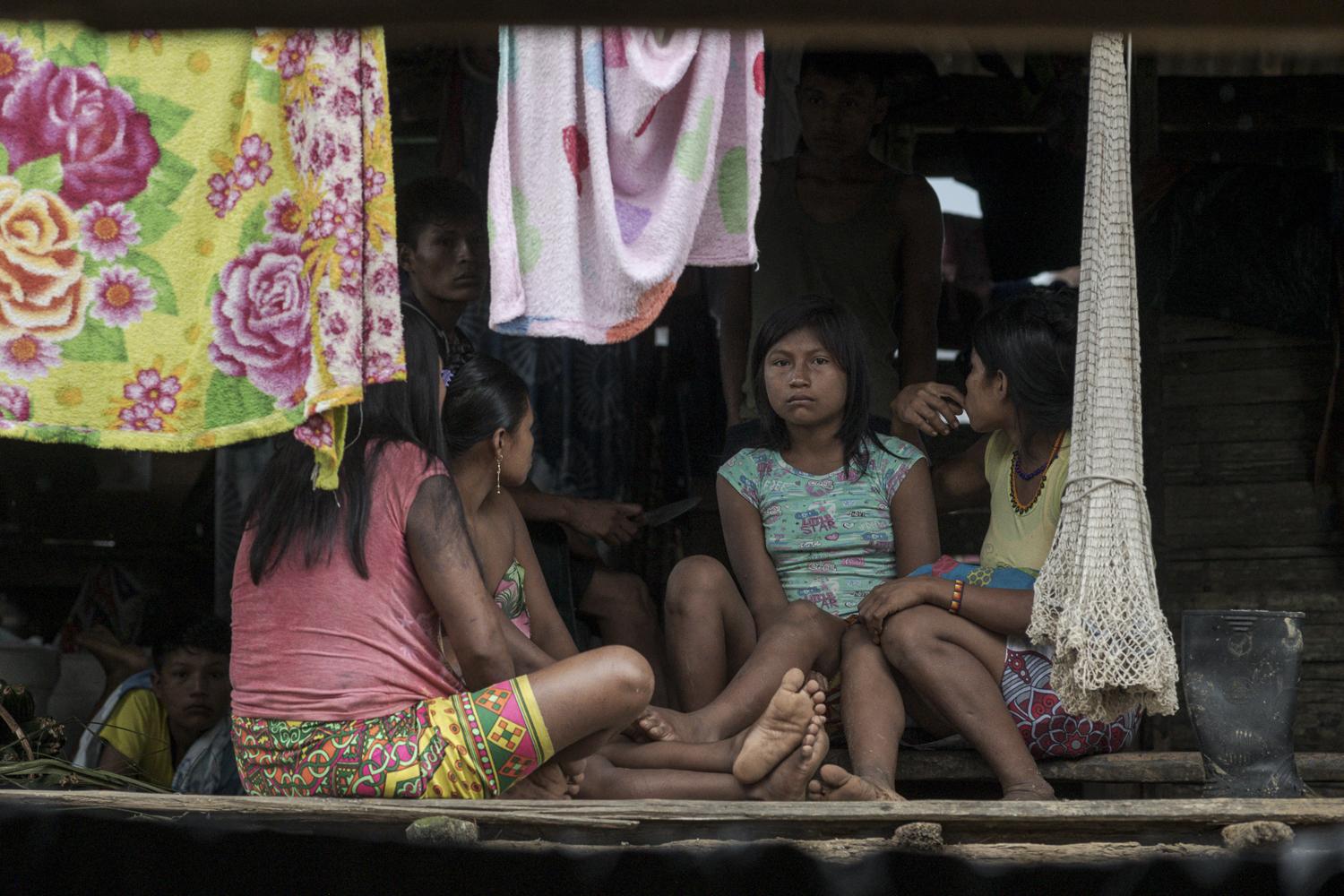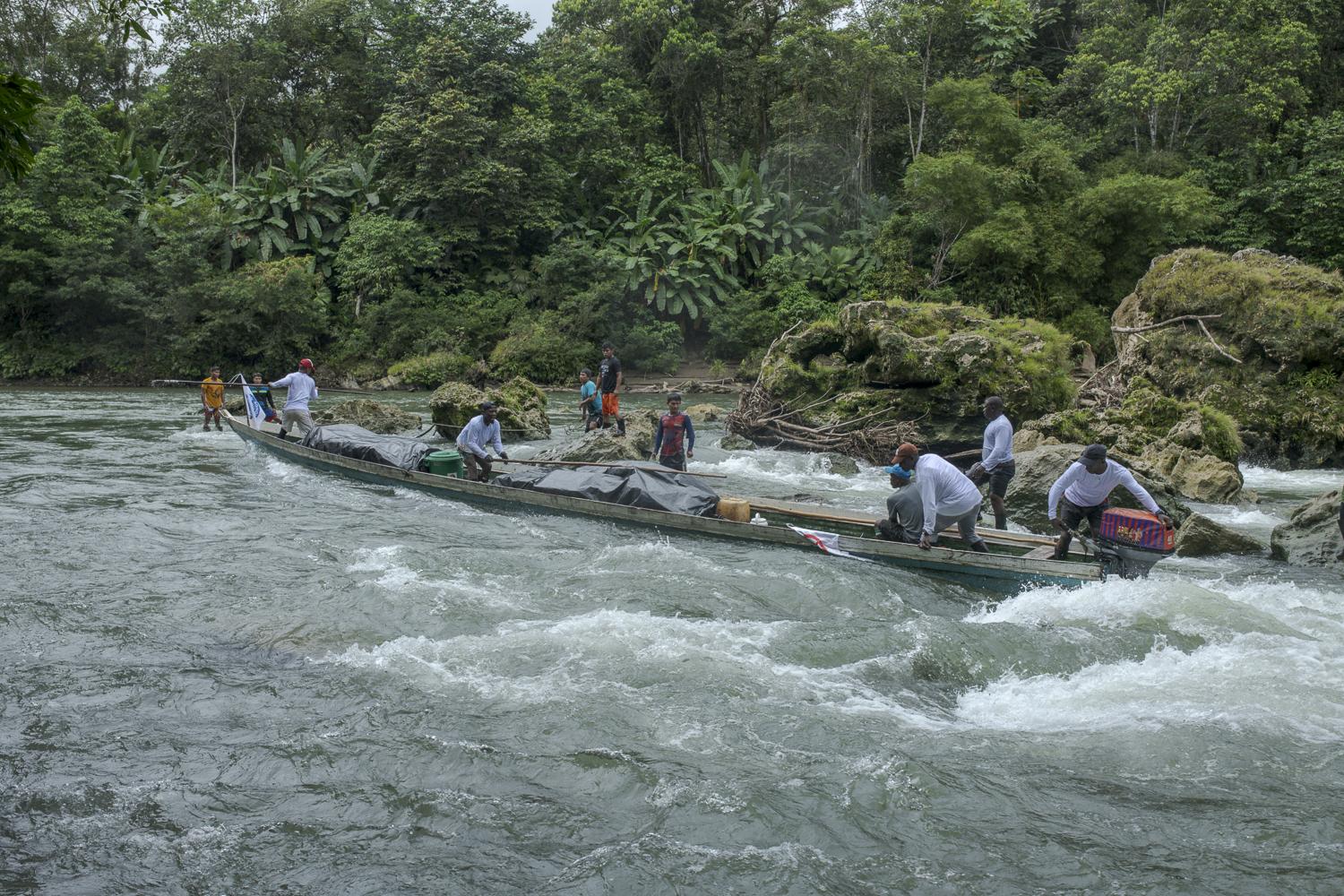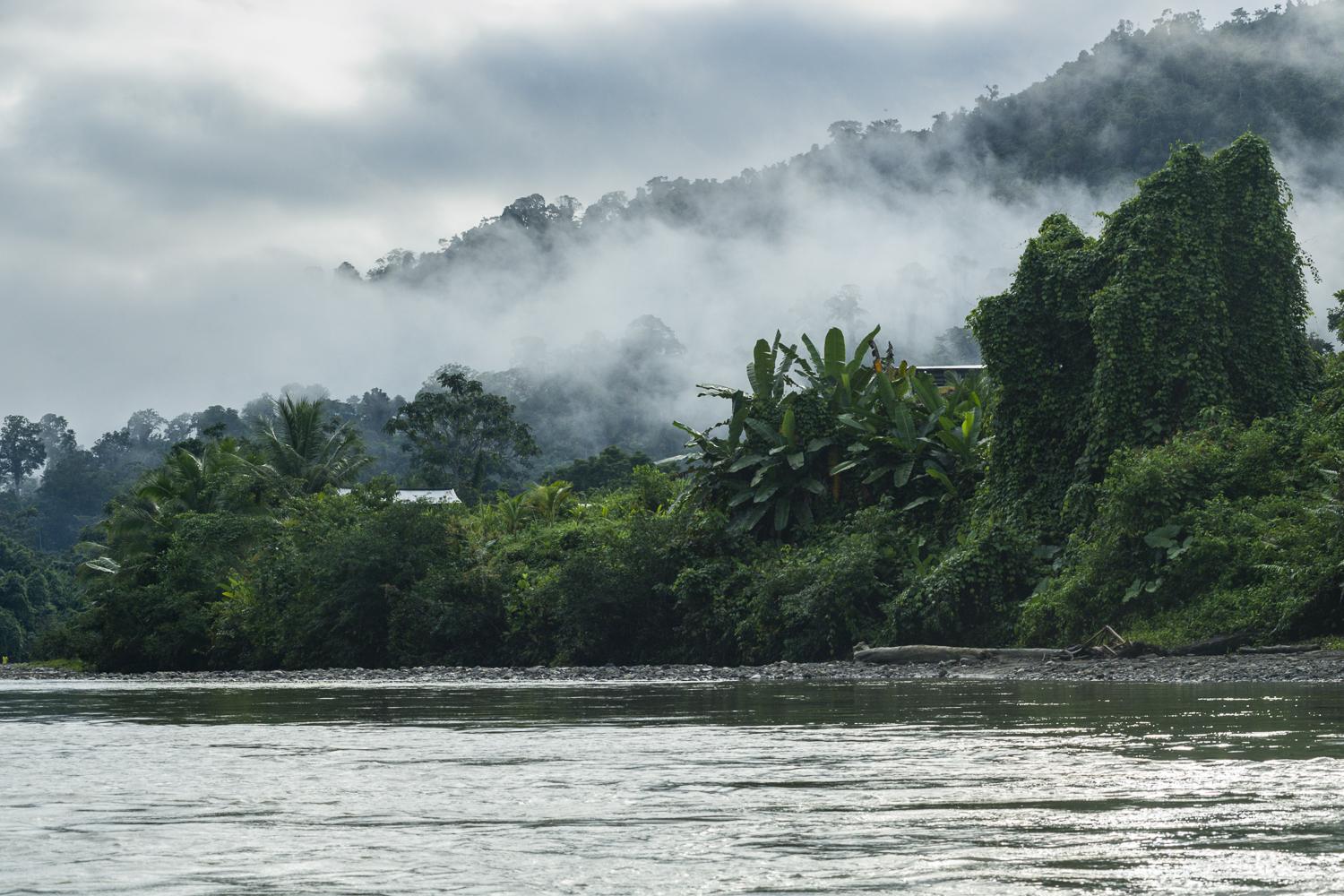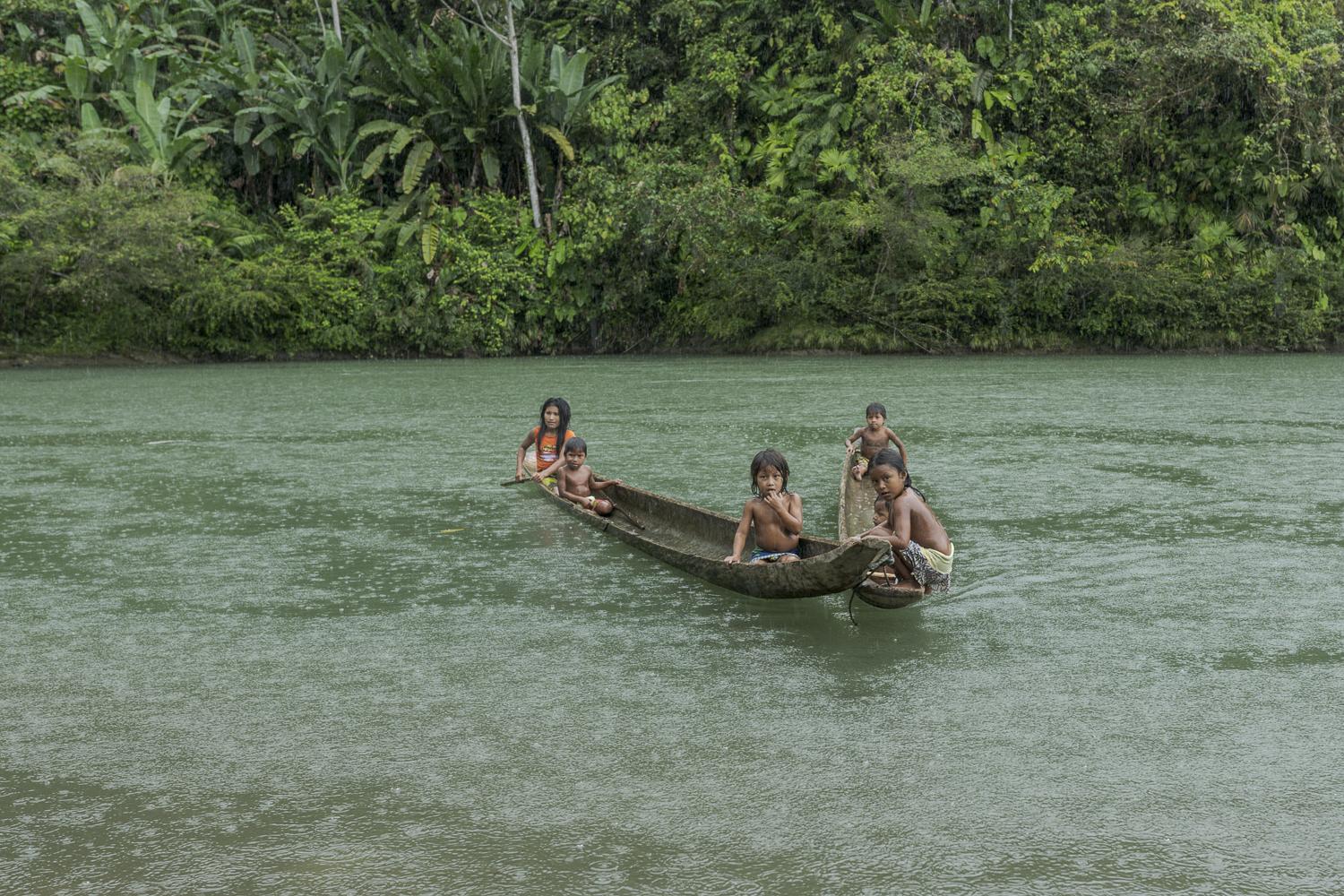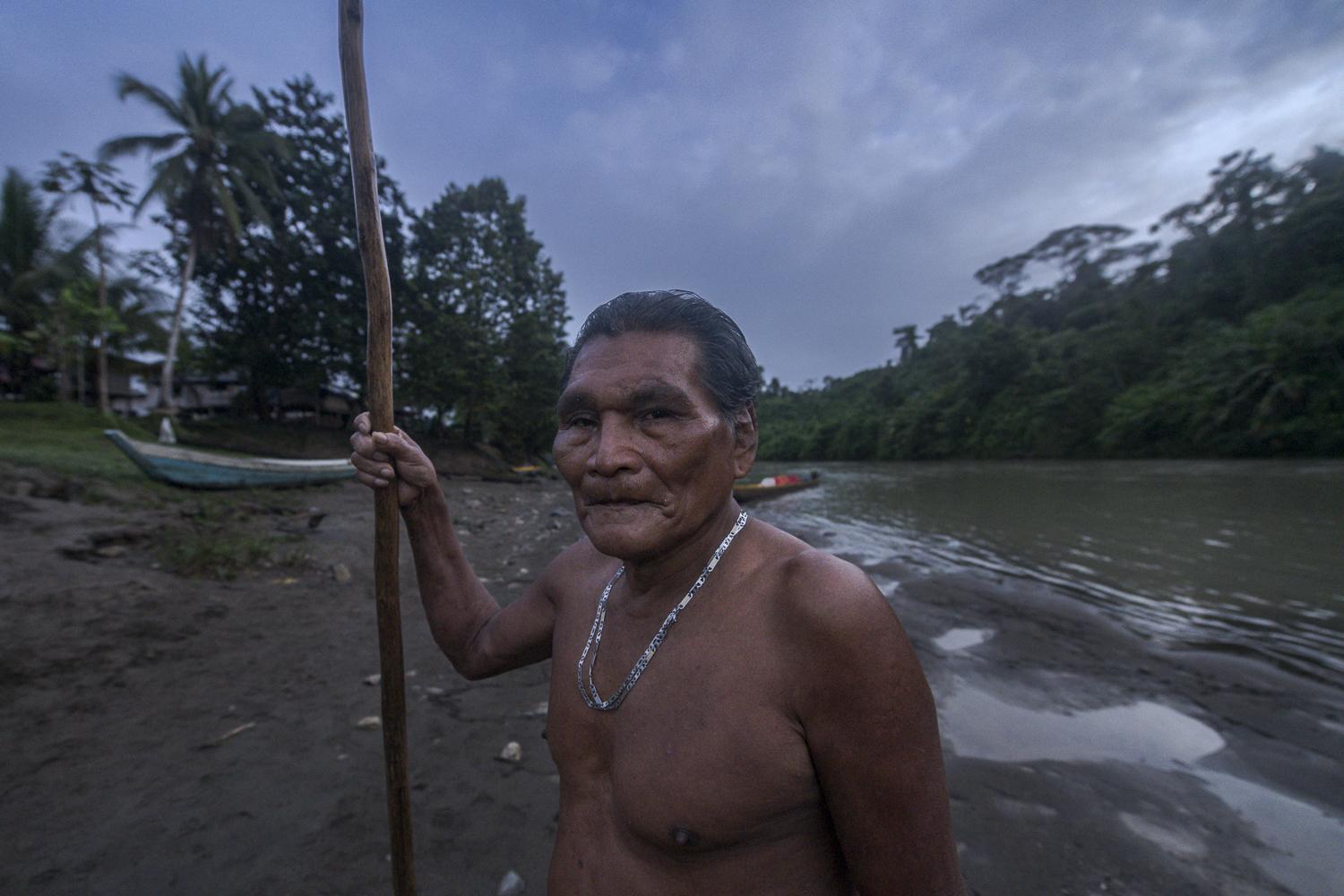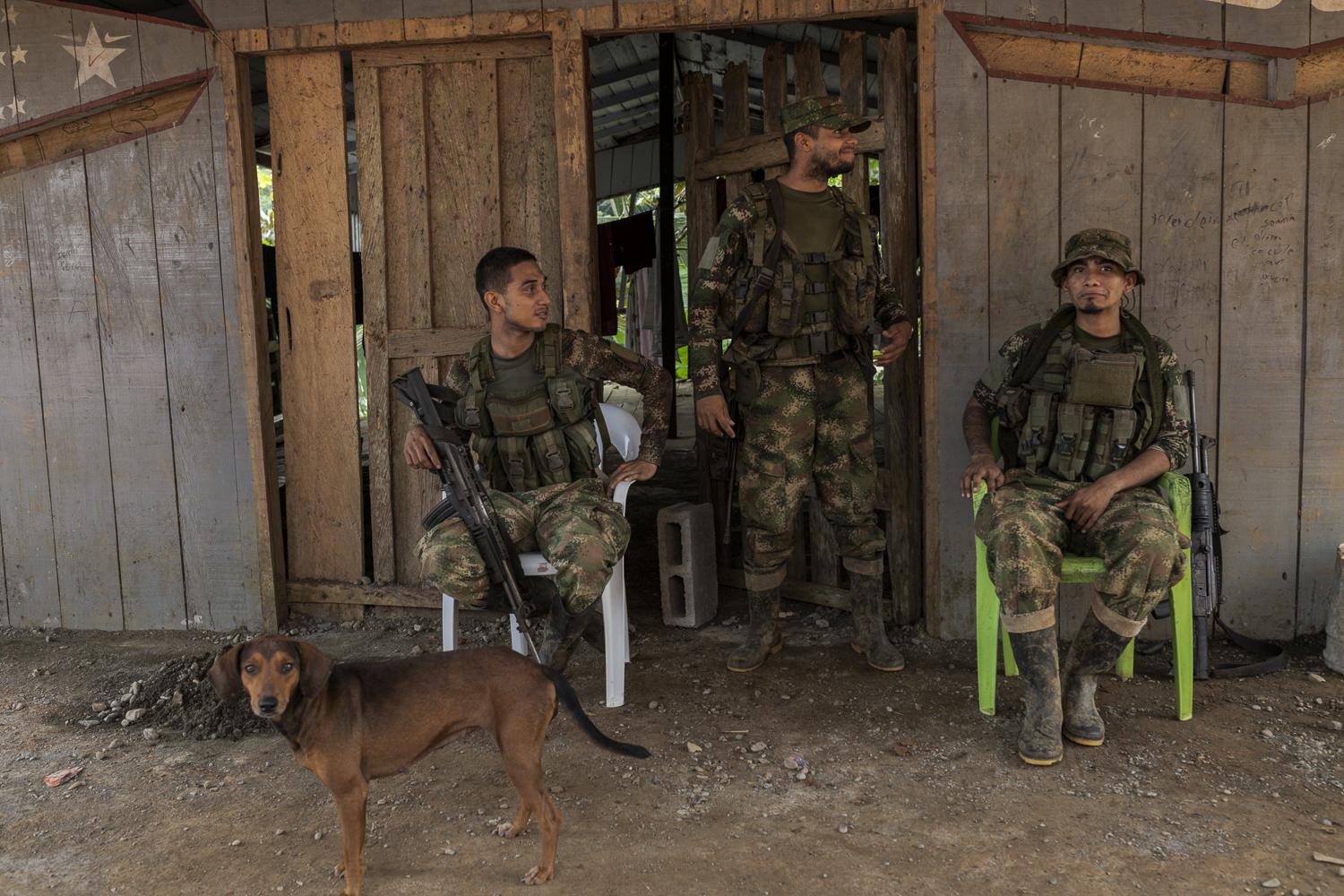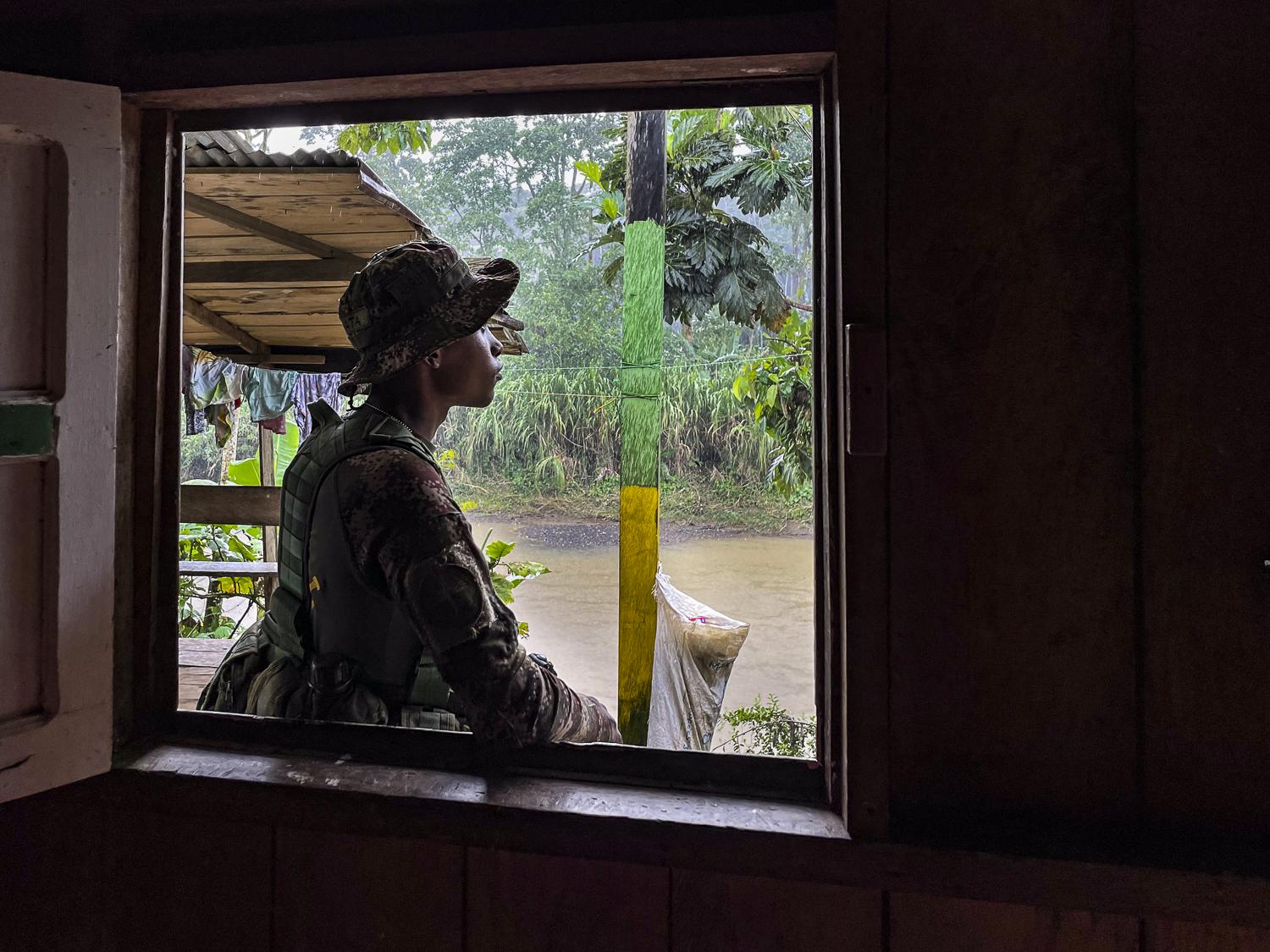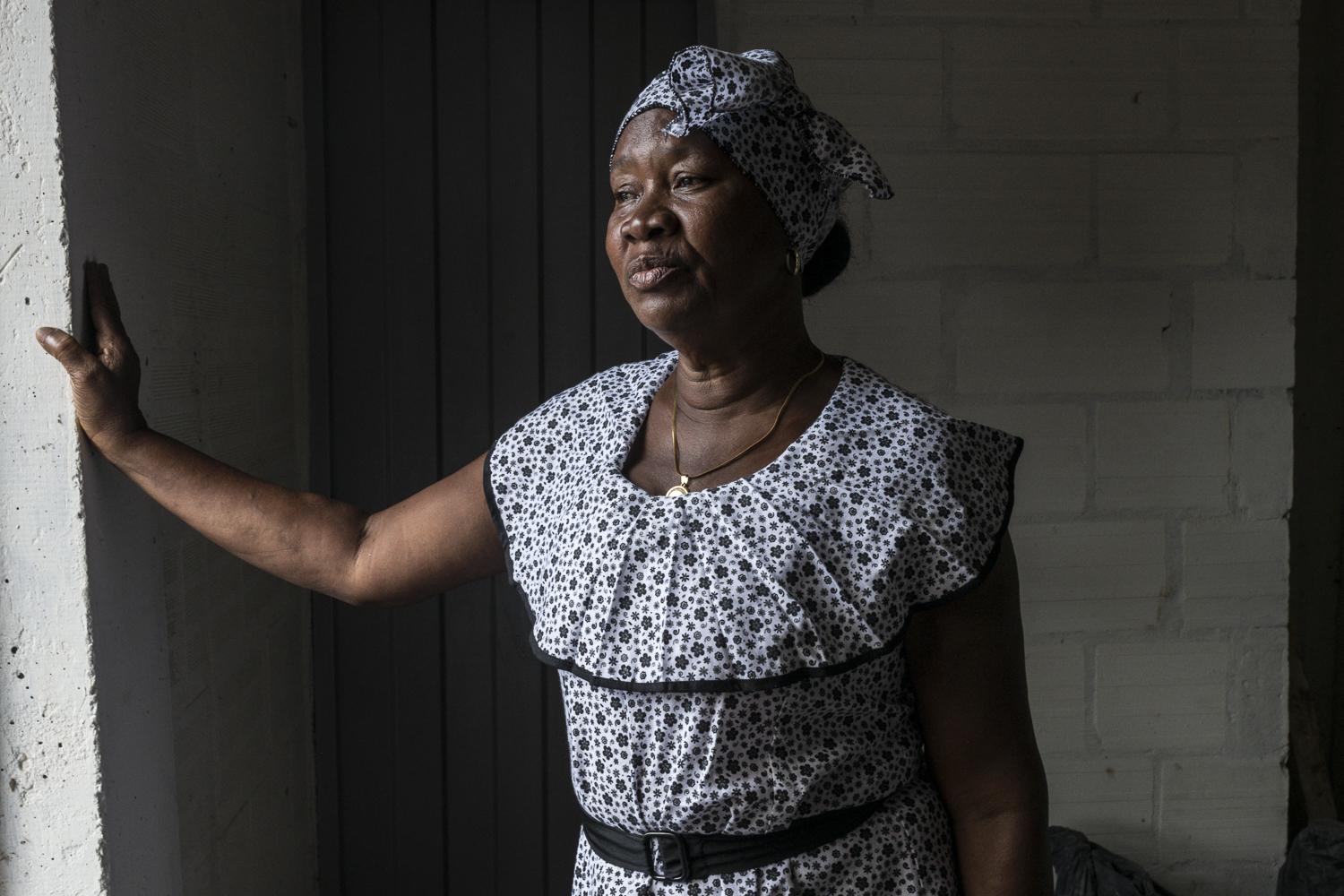The violated territory, the isolation of the communities in Medio Atrato, Colombia
The violence generated by different armed actors for the control of the territories of Medio Atrato, Colombia, put at risk many of the social and collective dynamics that define the worldview of the Emberá Dobidá indigenous people, who have inhabited this tropical jungle of South America for centuries.
Since this occupation, the Emberà population was allowed to move freely through their lands and rivers; which affected their ability to farm and feed themselves, causing malnutrition problems; as well as their ancestral practices and their relationship with the land.
A method for the control and restriction of mobility used by the armed groups was the use of antipersonnel mines. Community members were victims of them. In addition to the symbolic power of mining the land that has a sacred value for the Emberà, the conflict-affected their conception of the world and community life.
In historic abandonment violence generated by different armed actors for the control of the territories of Medio Atrato, Colombia put at risk many of the social and collective dynamics that define the worldview of the Emberá Dobidá indigenous people, who have inhabited this tropical jungle of South America for centuries.
An Emberá indigenous family works with corn remains outside their home in the Bellavista community, in the Colombian Pacific. Malnutrition problems in the region are high. Bellavista, Colombia, November 21, 2022. Chanú, Pogué, Bellavista, Puer Colombia
Aerial view of the Atrato river, in the Pacific region, Colombia, one of the most inaccessible jungles in the country. Pacífico, Colombia, november 24, 2022. Vigía del Fuerte Colombia
Some little girls from the community of Bellavista, Chocó take a bath in the Bojayá River, one of the most important tributaries of the Colombian Pacific and disputed for decades by different paramilitary groups, guerrillas and the army. Bellavista, Colombia, November 20, 2022. Chanú, Pogué, Bellavista, Puer Colombia
Colombian army soldiers walk through the streets of the community of Chanú. Due to the presence of guerrilla and paramilitary groups, the Armed Forces of Colombia have surrounded communities like this one. The inhabitants of these places continuously coexist with symbols of violence such as high-powered weapons, no matter the group that carries them, the indigenous people live surrounded by them. Chanú, Colombia. November 22, 2022. Chanú, Pogué, Bellavista, Puer Colombia
The tomb of little Moises David who died when he was two years old in "The Boyajá massacre". In 2002, in the community of Bellavista, 74 people lost their lives due to an explosion during the confrontation between the armed FARC-EP and the paramilitaries of the Élmer Cárdenas Bloc of the United Self-Defense Forces of Colombia (AUC). Bellavista, Colombia. November 20, 2022. Chanú, Pogué, Bellavista, Puer Colombia
Inhabitants of the town of Bellavista walk in the rain. Bellavista is a relatively new municipality, many of its inhabitants are survivors of the "Bojayá Massacre", where 98 civilians lost their lives during a confrontation between the FARC and a Paramilitary group. Bellavista, Colombia, November 20, 2022. Comunidad Pogue Colombia
Portrait of Rogelio Salazar Gómez, parish priest of the Bojayá church and one of the main leaders of the area. Bellavista, Columbia. November 21, 2022. Vigía del Fuerte Colombia
Ana Oneida Orejuela, Rosmira, and Rosa Pulia are sitting in a small health center in the community of Pogué, Chocó. They are some of the oldest praise singers in the region. They began to denounce through song the violence they experienced as a result of the armed conflict. After the "Bojayá Massacre" in 2002, members of the communities came together to raise their voices and also to try to heal fear and pain through their songs that describe their daily lives in the midst of an armed struggle that has confined them for years. Pogué, Colombia. November 23, 2022. Comunidad Pogue Colombia
Travail humanitaire (soins de santé primaires d'urgence, y compris médecine générale, santé sexuelle et reproductive et santé mentale) de la Mission colombienne de Médecins du Monde France dans la Communauté de Pogue, Bojayá, Département du Chocó, Colombie, novembre 2022. Comunidad Pogue Colombia
A group of soldiers guarding the Pogué community take a break. Due to the high levels of conflict, the army has established bases in some communities in the region. Chocó, Colombia, November 11, 2022. Comunidad Pogue Colombia
Portrait of an indigenous woman from the Émbera dobida people in the community of Chanú. Choo, Colombia. November 22, 2022. Comunidad Chanú Colombia
Luis and Walter patrol the surroundings of the Chanú community. Due to the presence of armed groups in the region, the inhabitants of Chanú decided to create their own indigenous guard. With their presence they seek to prevent the forced recruitment of young people, the rape of women and the murders that have been taking place for more than two decades. Chanu, Colombia. November 21, 2022. Comunidad Chanú Colombia
A small Embera Dobida indigenous boy looks behind the bars of his school, a small wooden construction where the children learn about a country they don't know because they have never left their community and practically live without any kind of service from of the government. chocó, Colombia. November 22, 2022. Chanú, Pogué, Bellavista, Puer Colombia
A girl from the indigenous community receives medical attention for a respiratory problem. The presence of the state in basic services such as health does not exist, for this reason some NGOs have decided to intervene in the communities of the Colombian Pacific. Chanú, Colombia,November 22, 2022. Comunidad Chanú Colombia
A woman from the Emberá Dobidá indigenous people waits to receive medical attention from a humanitarian organization. his body is painted to prevent mosquitoes and damage from sunlight. Due to the lack of presence of the State and of all types of government services, the life expectancy of the population is considerably reduced compared to other regions of the country. Chocó, Colombia. November 21, 2022. Chanú, Pogué, Bellavista, Puer Colombia
The Baquiaza family sitting in their little hut. The father of this family died in February 2021 due to an antipersonnel mine planted on the banks of the community. The use of explosives planted around the communities is another factor of fear and isolation in the inhabitants of the communities who have had to change their old way of life to survive. Chanú, Colombia. November 21, 2022. Chanú, Pogué, Bellavista, Puer Colombia
The boats of the logistics and medical team of Médicos del Mundo France fight against the current of the Bojayá River because they are trying to reach one of the most remote communities in the Colombian Pacific. collided, Colombia. November 21, 2022. Comunidad Chanú Colombia
Travail humanitaire (soins de santé primaires d'urgence, y compris médecine générale, santé sexuelle et reproductive et santé mentale) de la Mission colombienne de Médecins du Monde France dans la Communauté de Chanú, Bojayá, Département du Chocó, Colombie, novembre 2022. Comunidad Chanú Colombia
These children belong to the Embera indigenous people, the meaning of the name means "people of water". These little children who bathe while it rains in the waters of the Atrato River do not know that they live isolated from the rest of the country because there is a war going on around their community that has been going on for more than half a century and the lands they inhabit are disputed by different armed groups. . Fortunately they are still too young to understand the danger that exists around the Embera peoples. Choco, Colombia. November 21, 2022. Colombia
Omar is the Jaibana (shaman) of the Chanú community, his knowledge about plants and the spirits of the jungle help him to be a guide for the community. Chanú, Chocó, Colombi. November 23, 2033. Vigía del Fuerte Colombia
A group of soldiers guarding the Pogué community take a break. Due to the high levels of conflict, the army has established bases in some communities in the region. Chocó, Colombia, November 23, 2022. Comunidad Pogue Colombia
A Colombian Armed Forces soldier from the Pacific region guards the streets of the small community of Pogué, Choco. After the clashes for control of the territory between FARC armed groups and paramilitaries that claimed the lives of dozens of people, the army began to set up bases to try to take control of the area. Pogué, Colombia. November 23, 2022. Chanú, Pogué, Bellavista, Puer Colombia
Rosa Apulia Mosquera looks at the Bojayá River through the window and remembers her quiet childhood in that same place. She is one of the praise singers of Pogué and began to sing to get the pain she felt seeing her town and her river change because of the armed conflict. Pogué, Colombia. November 23, 2022. Chanú, Pogué, Bellavista, Puer Colombia
Public Project
The violated territory, the isolation of the communities in Medio Atrato, Colombia
860


